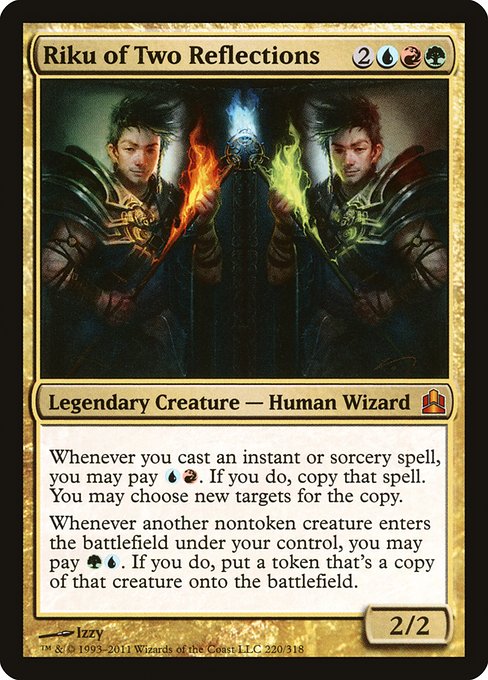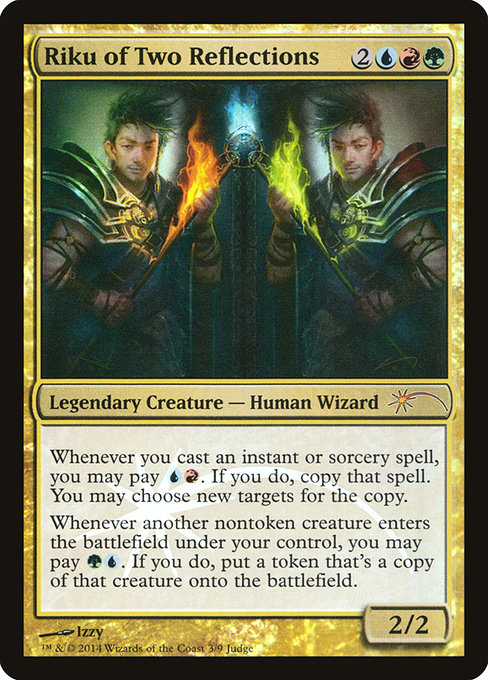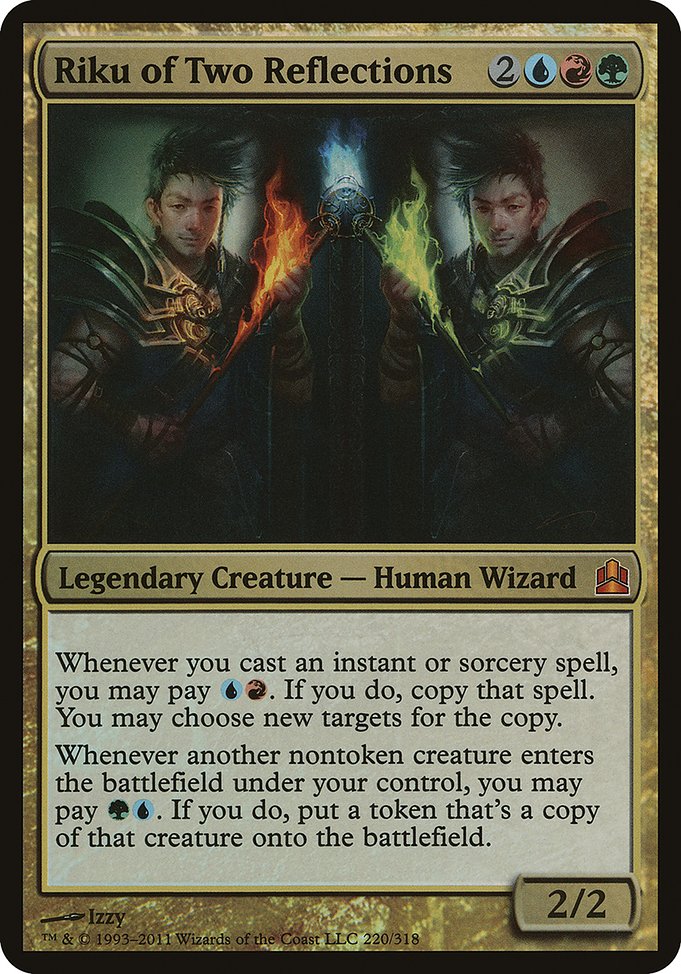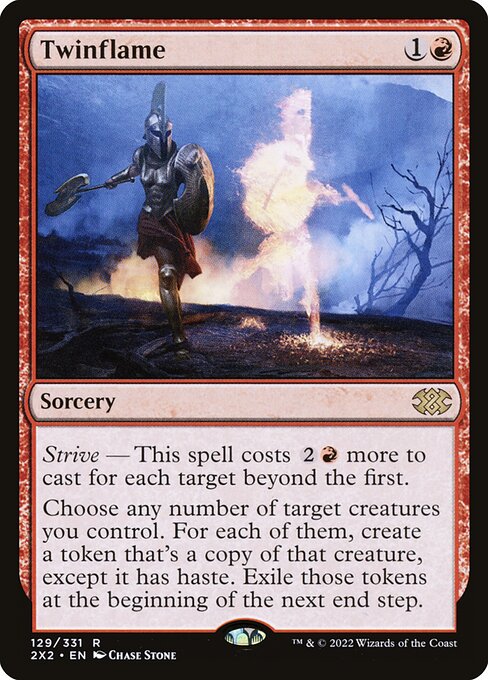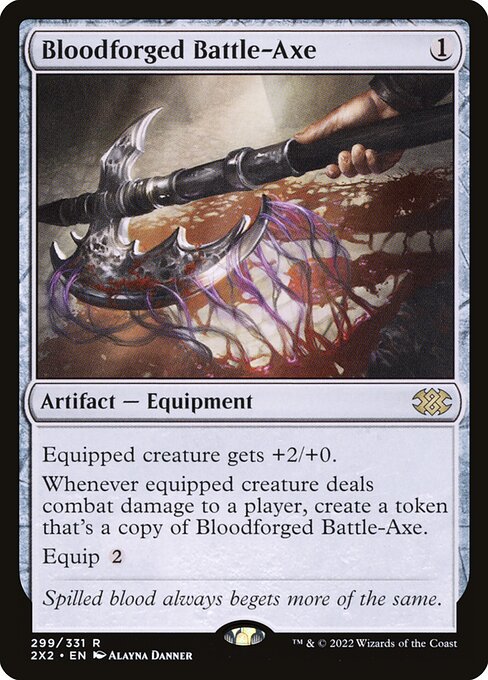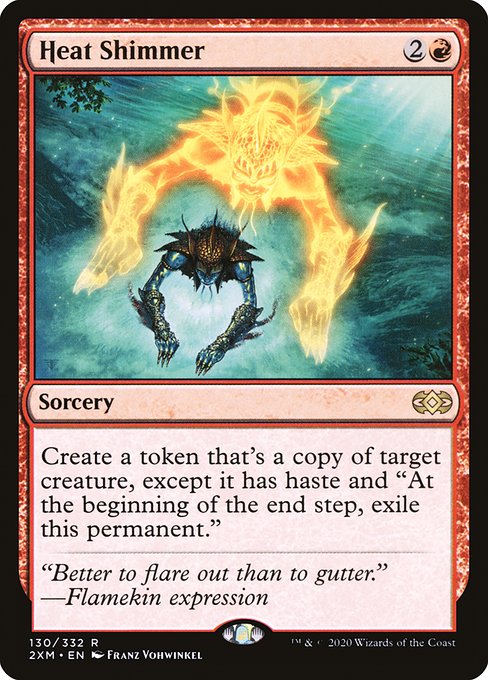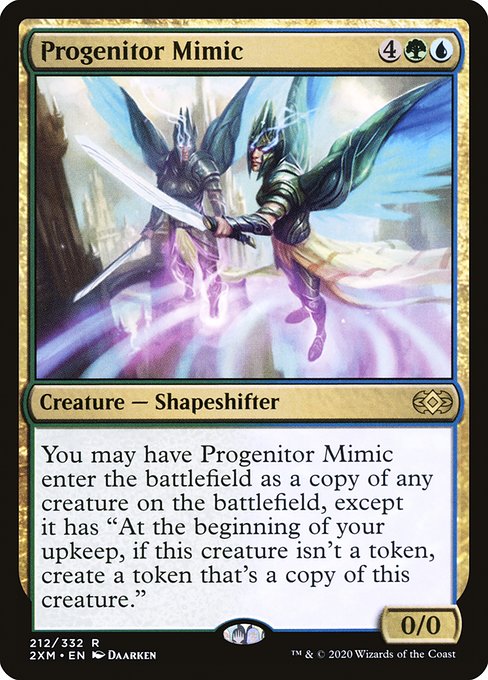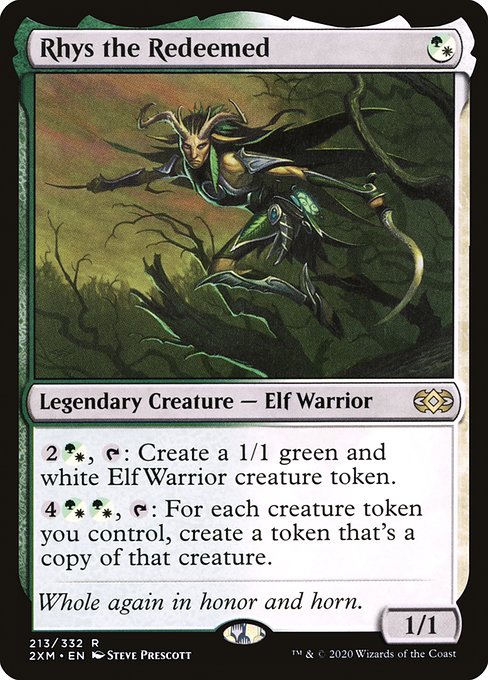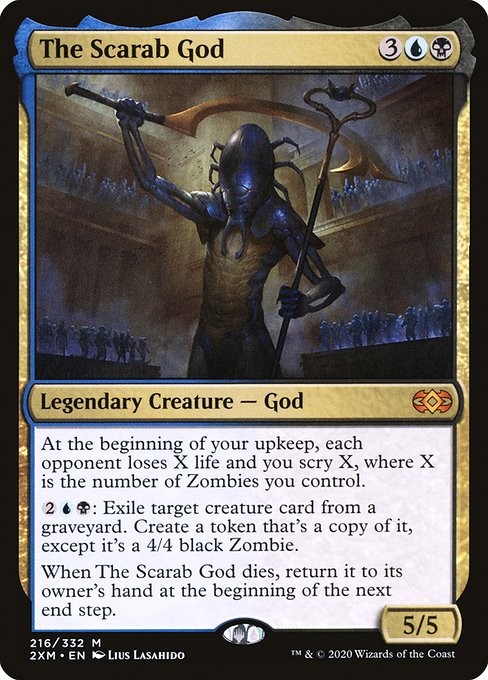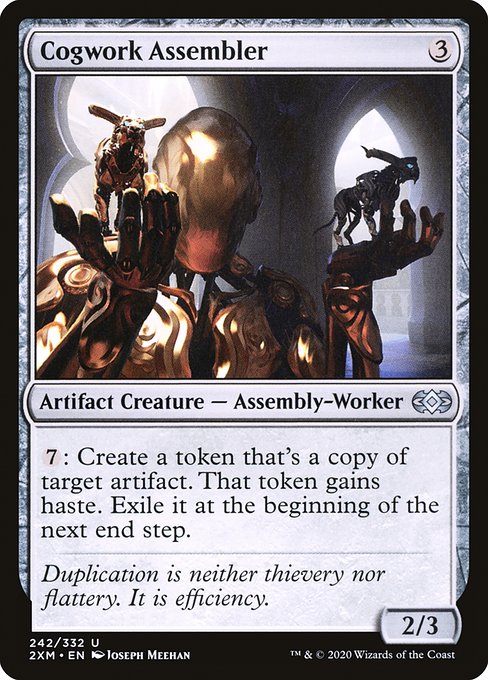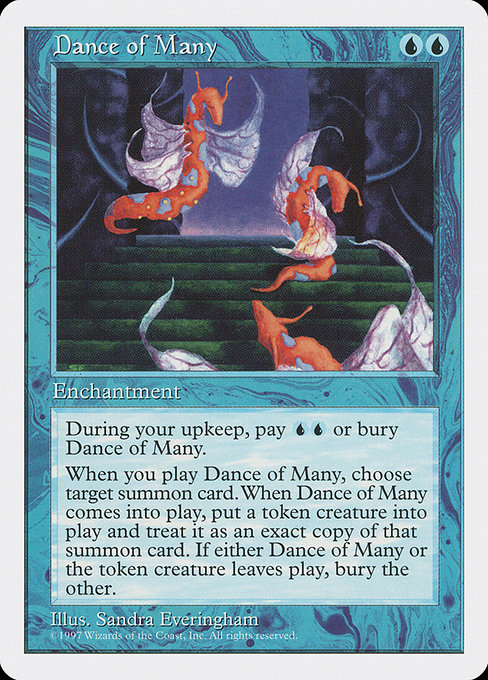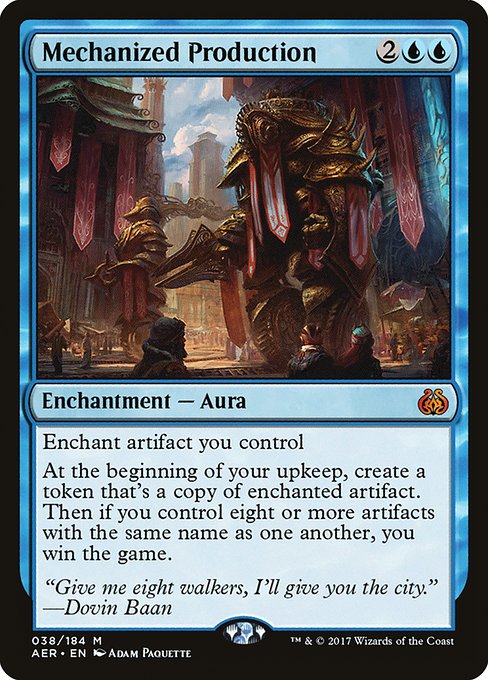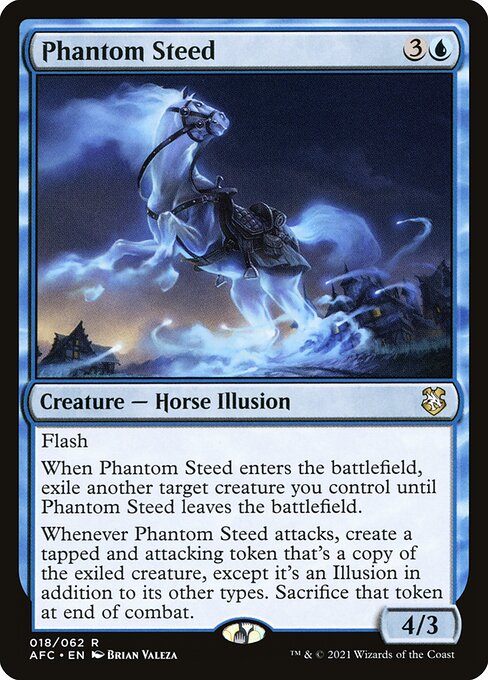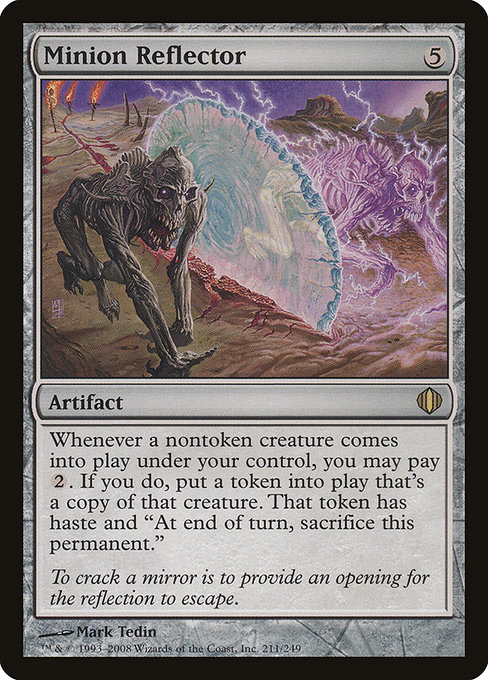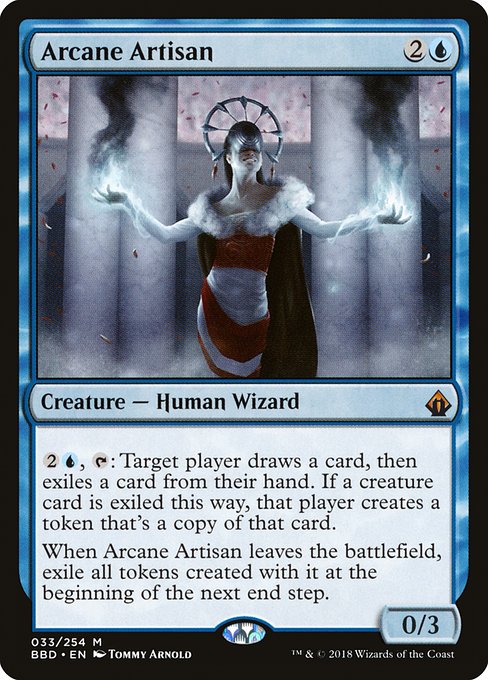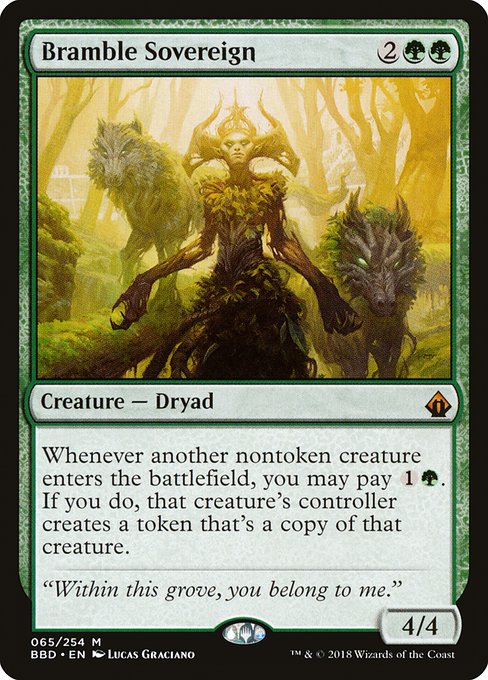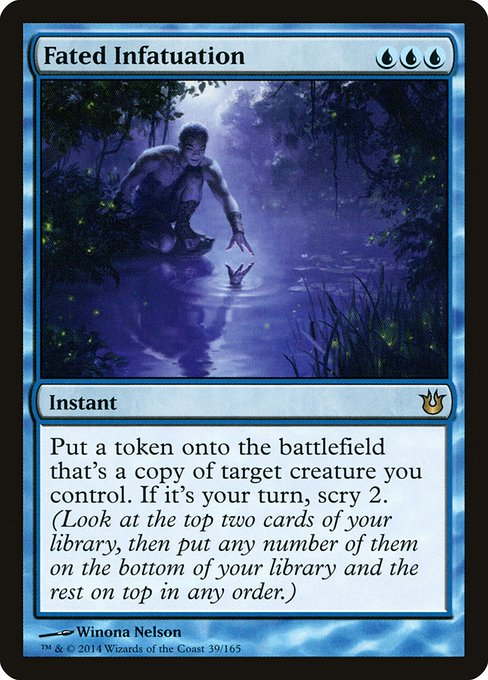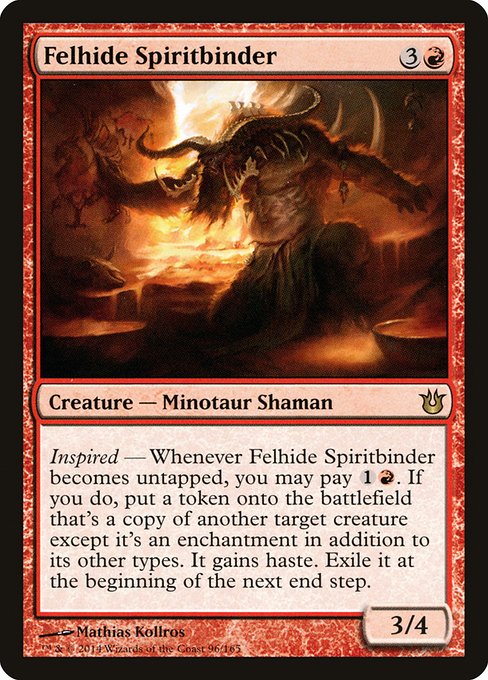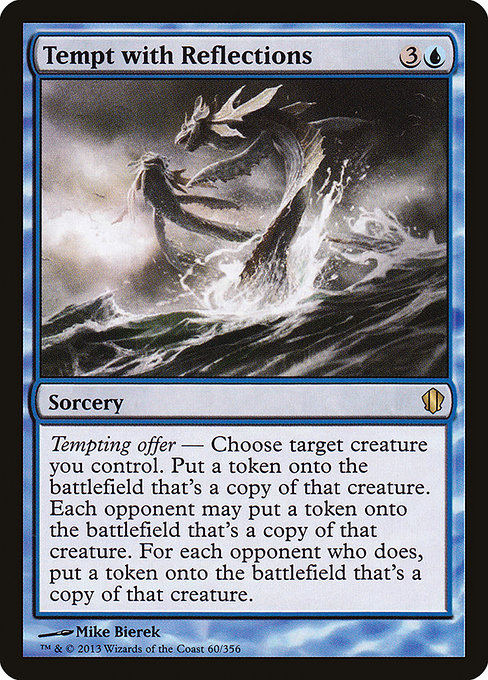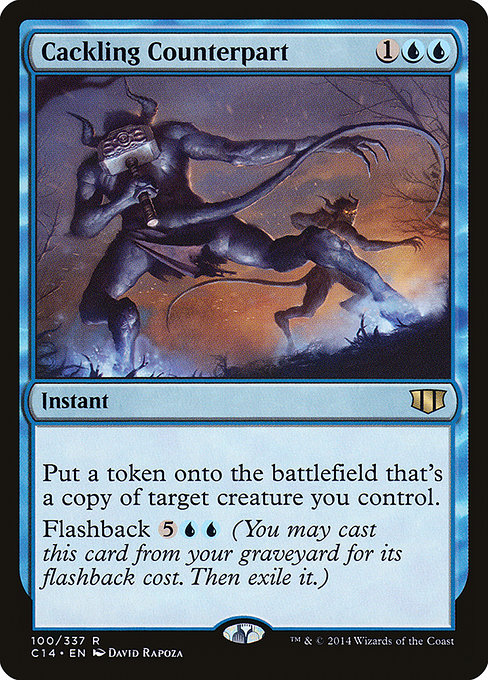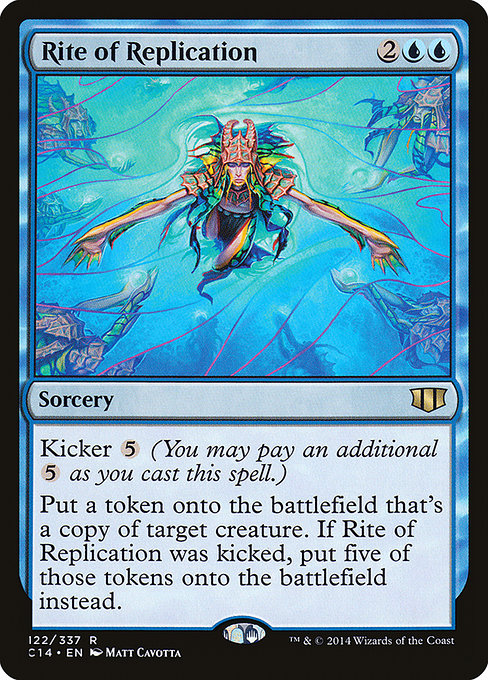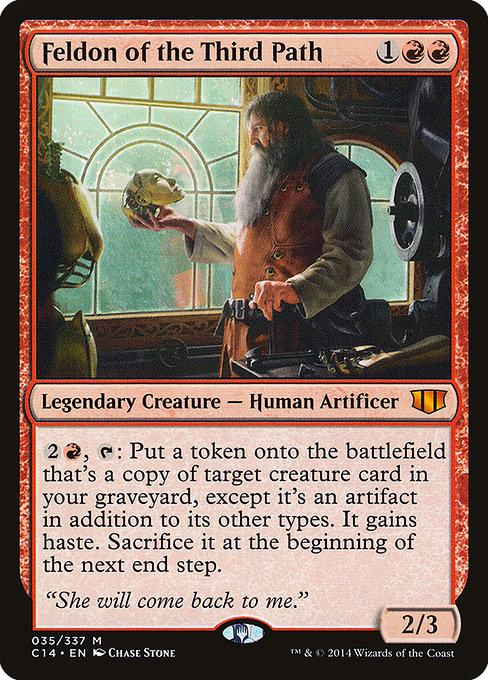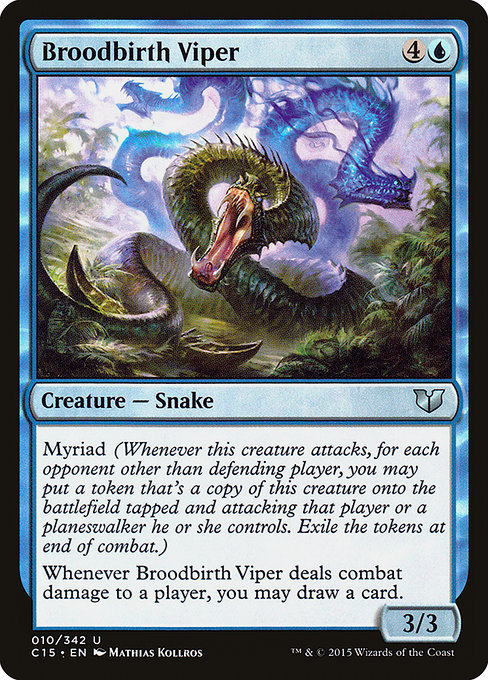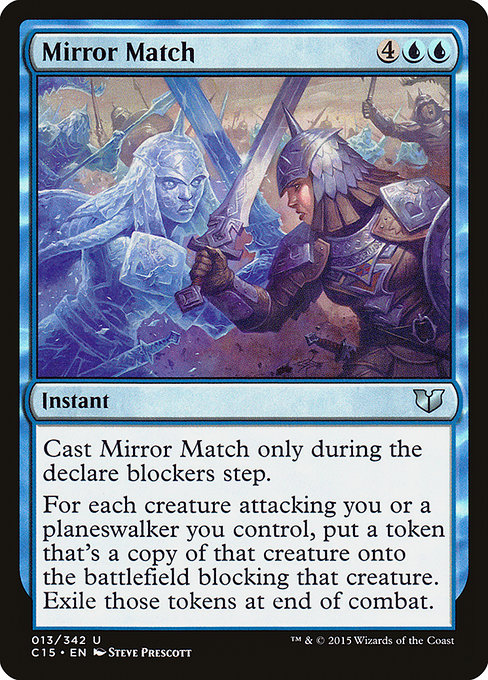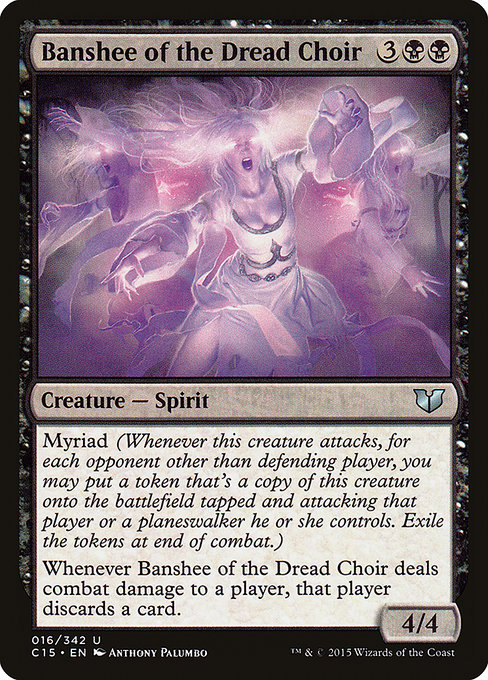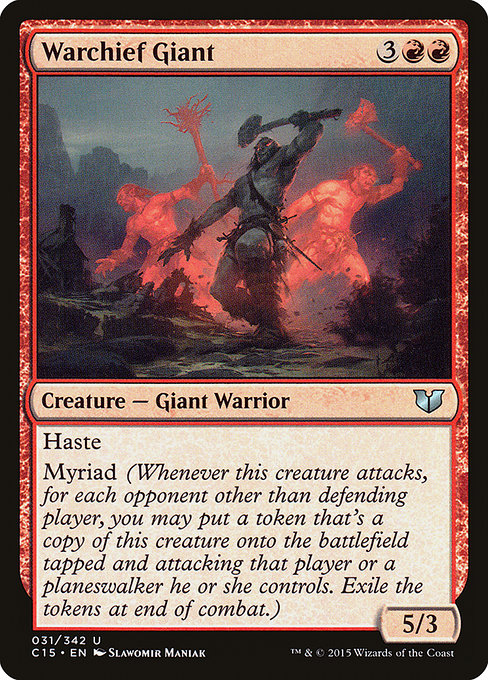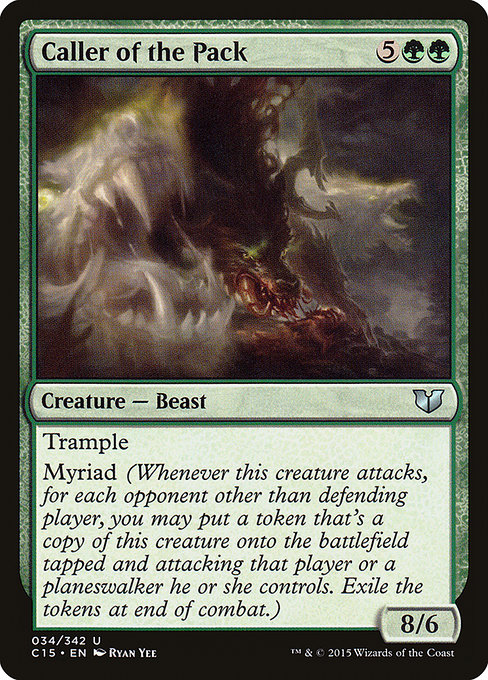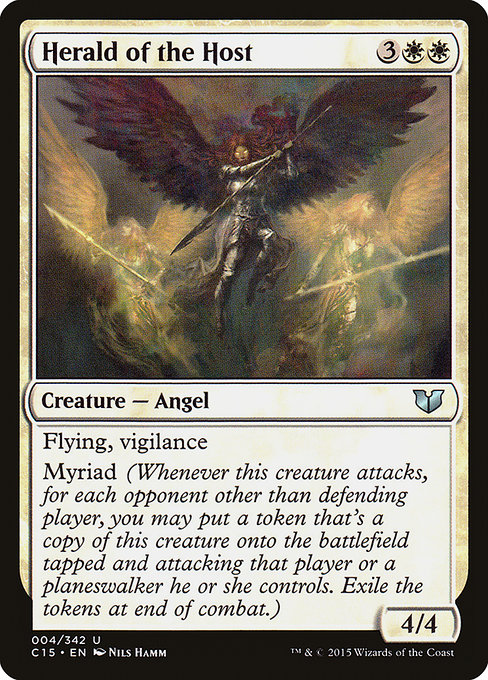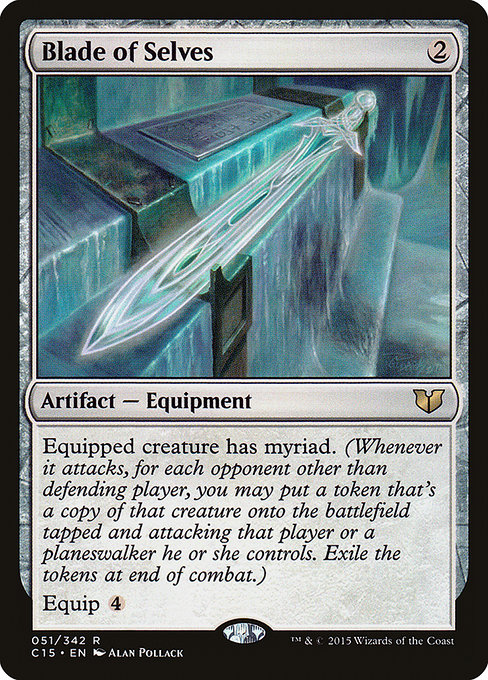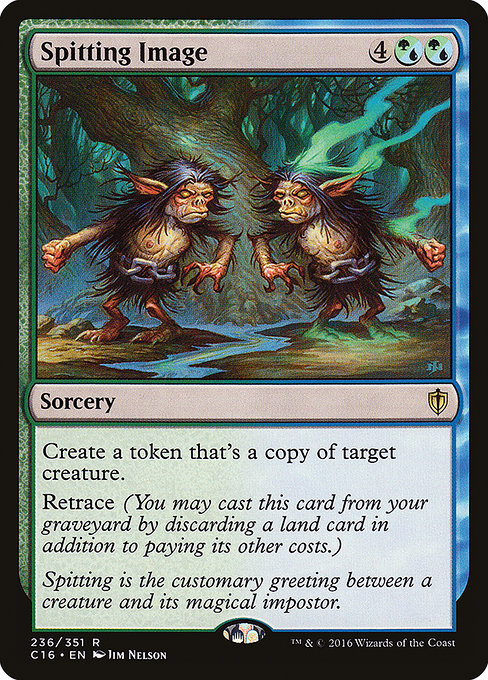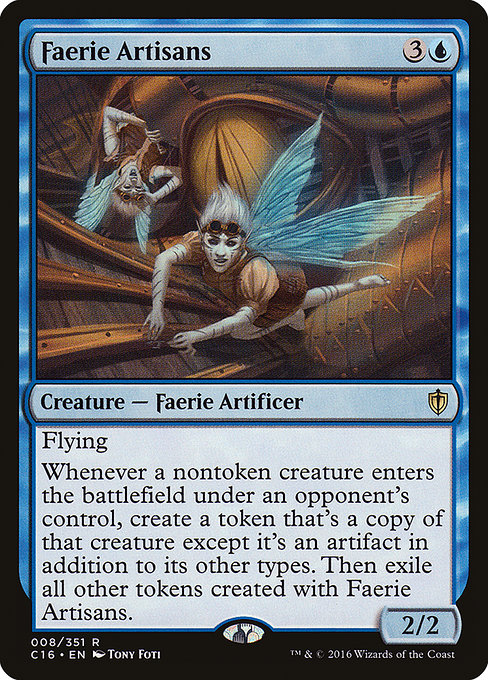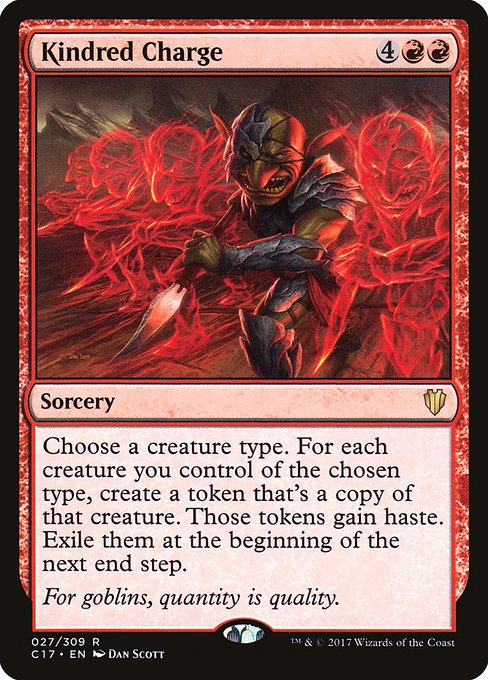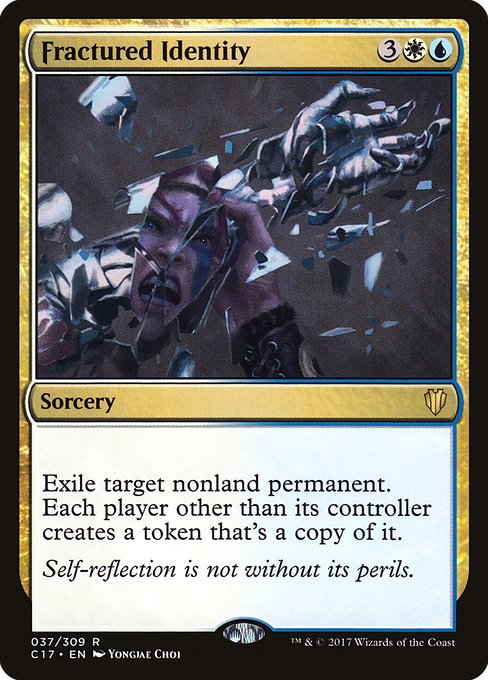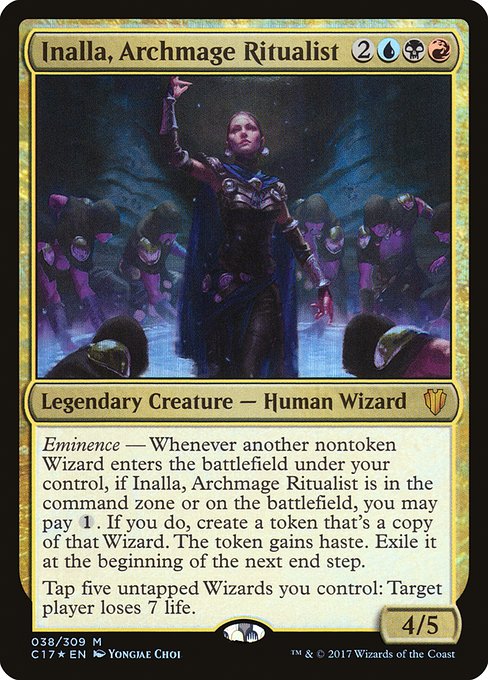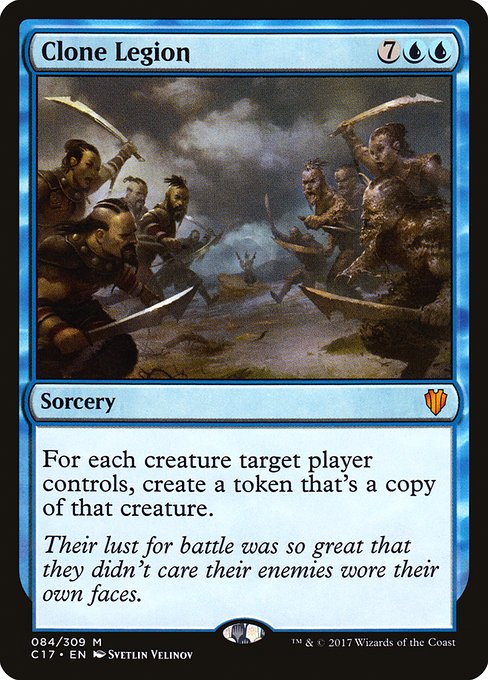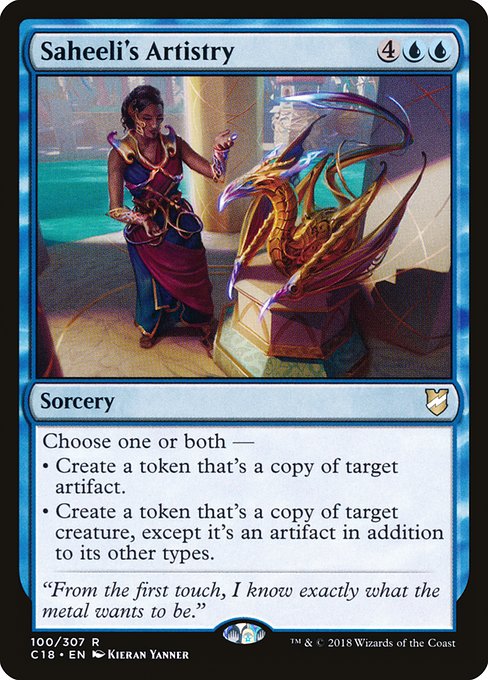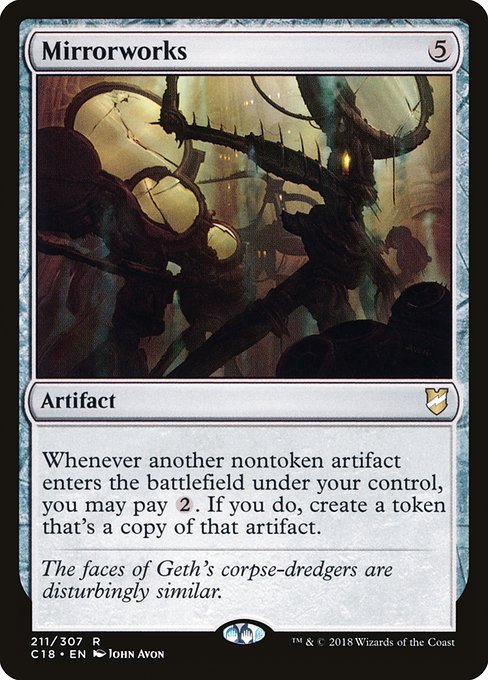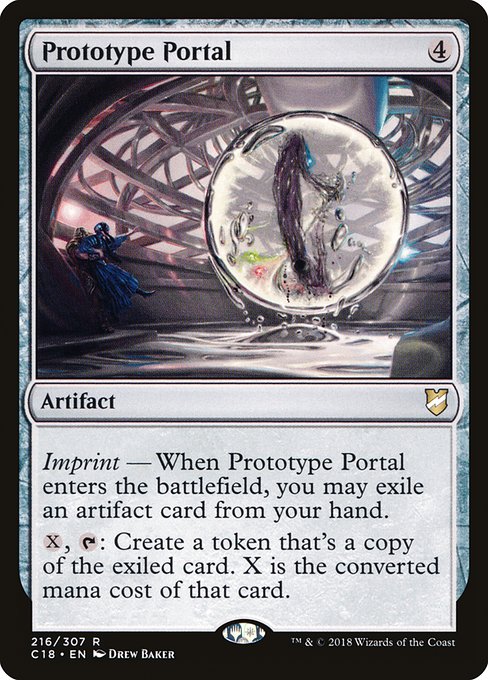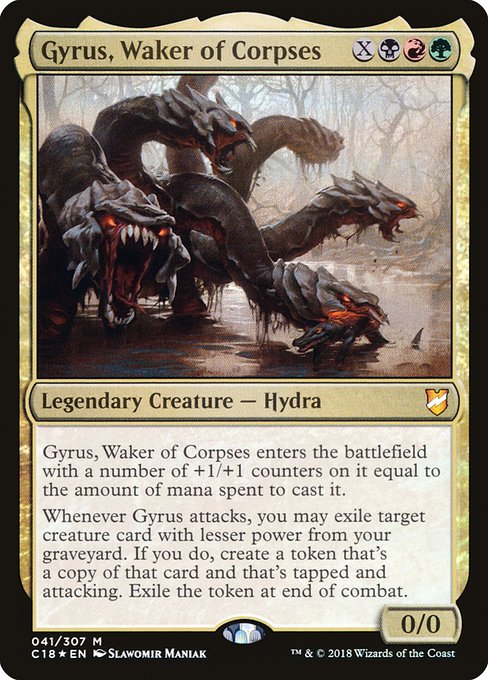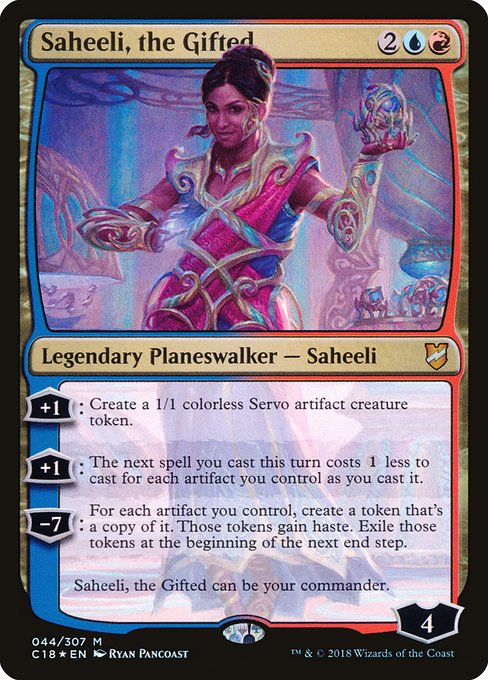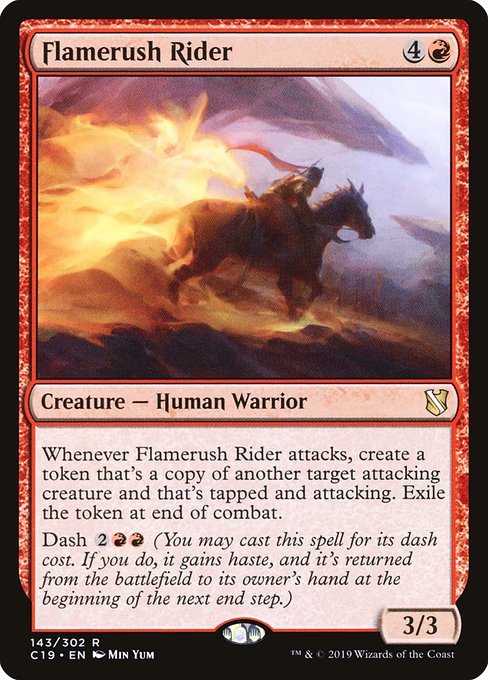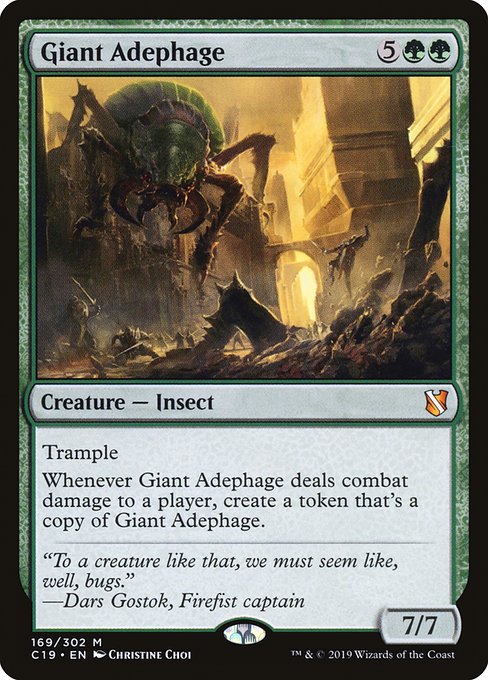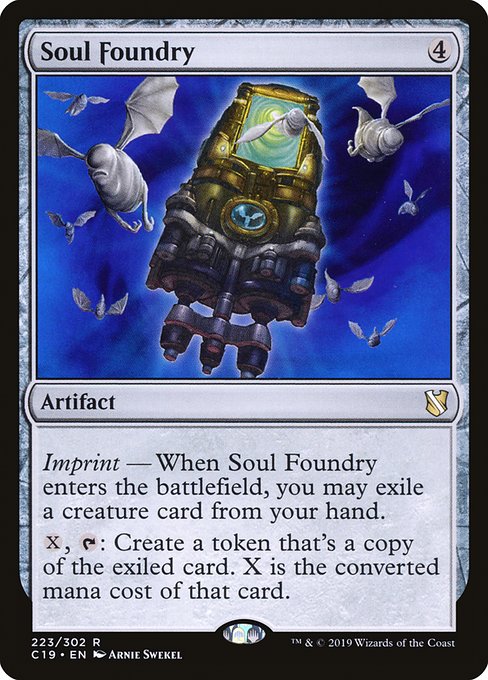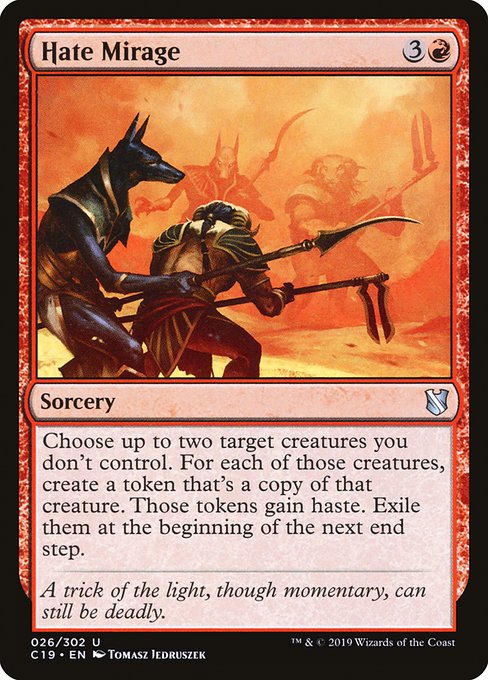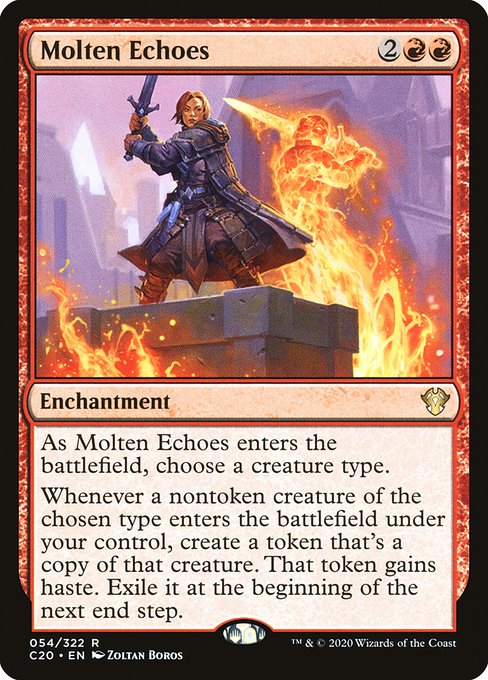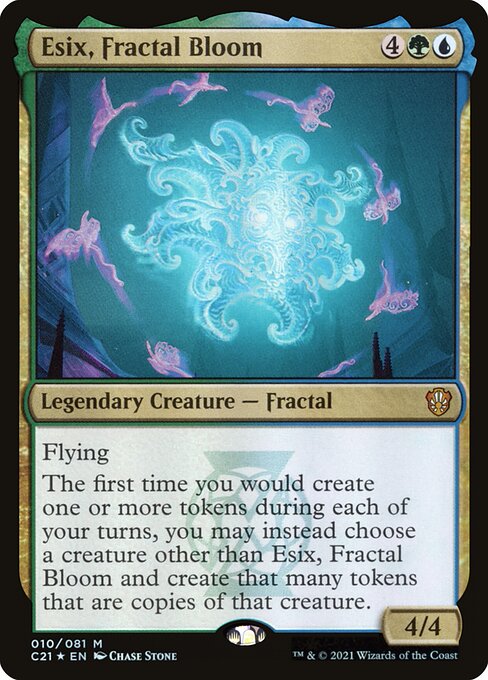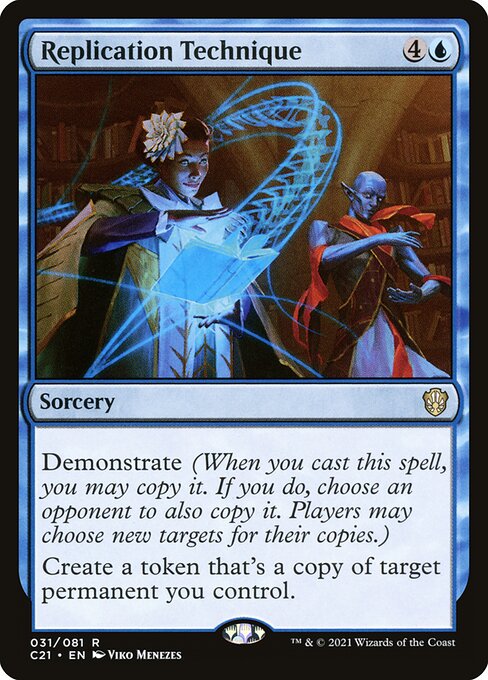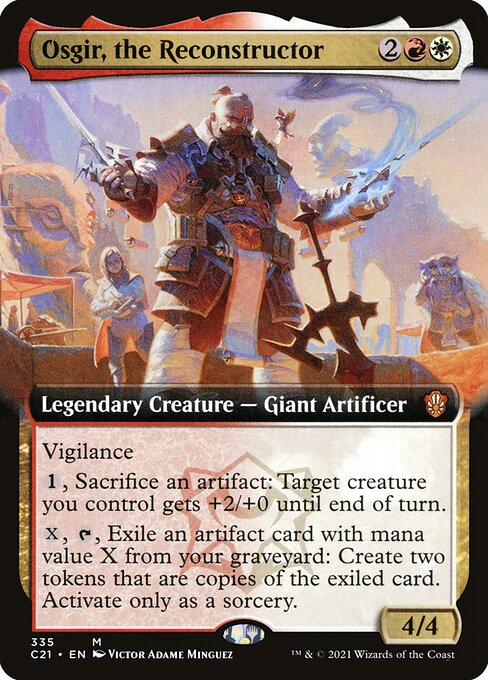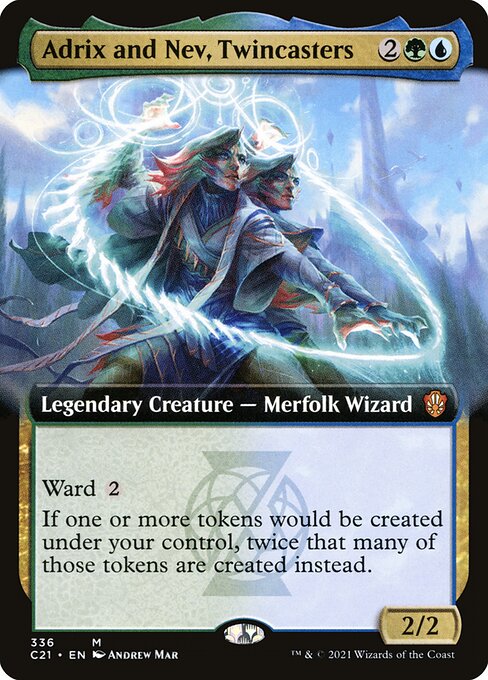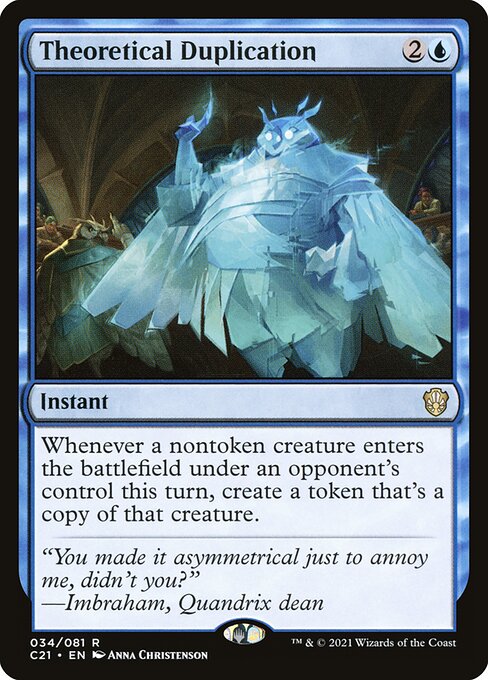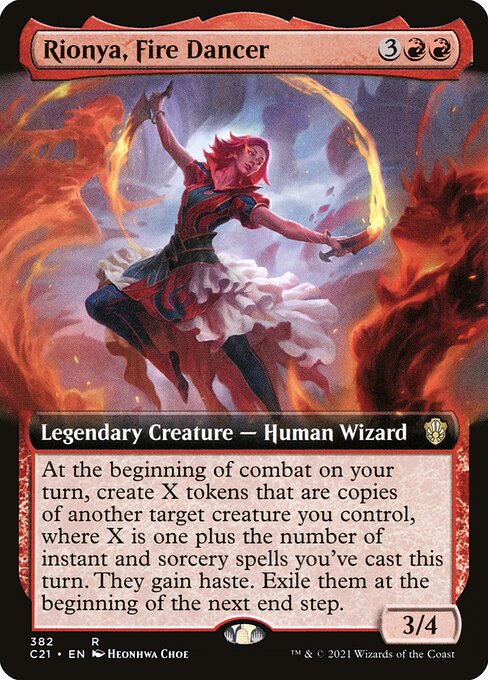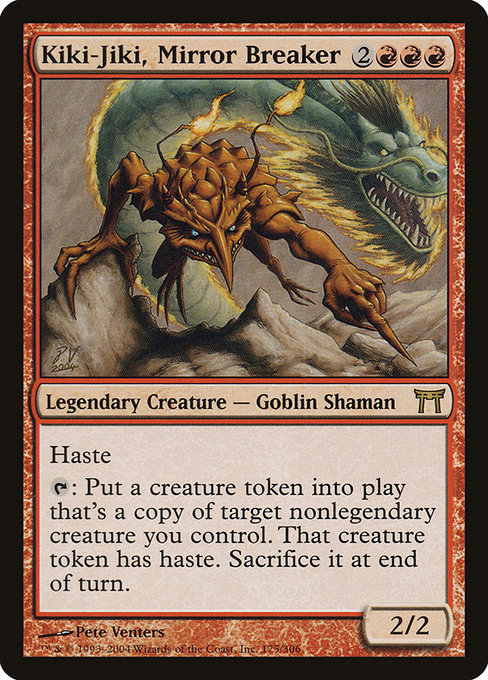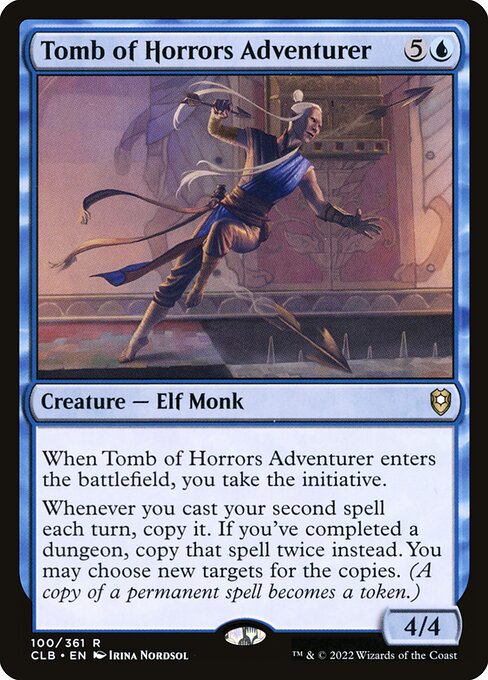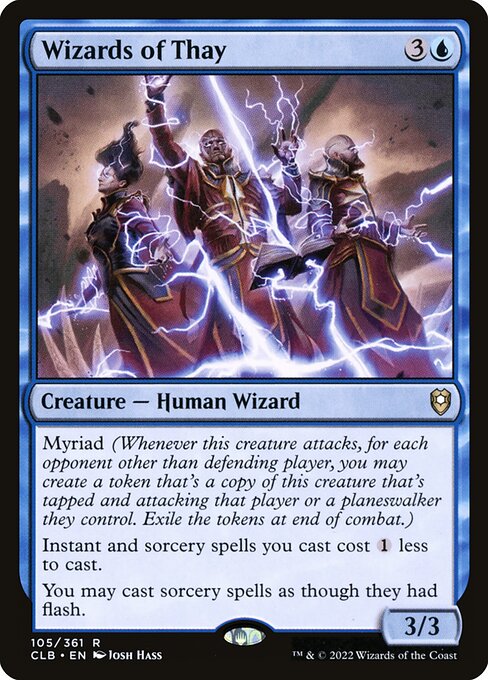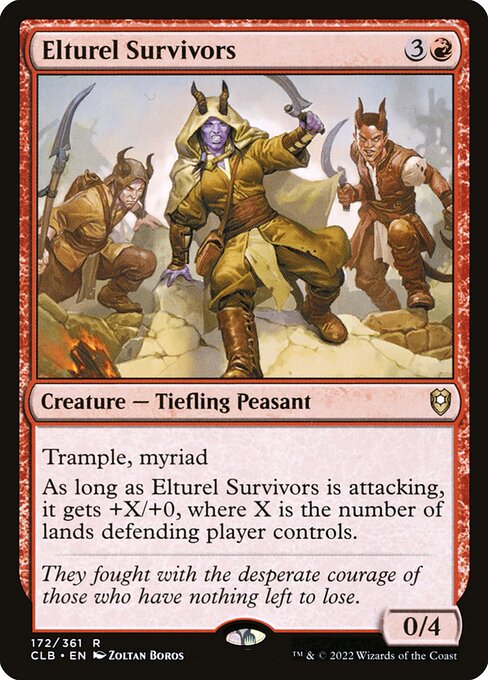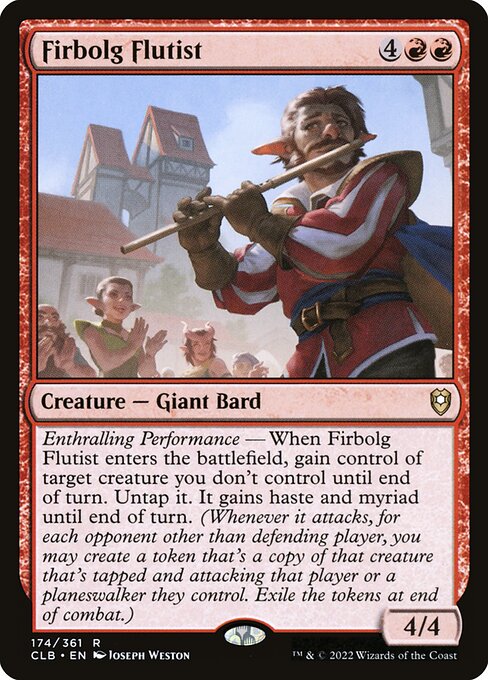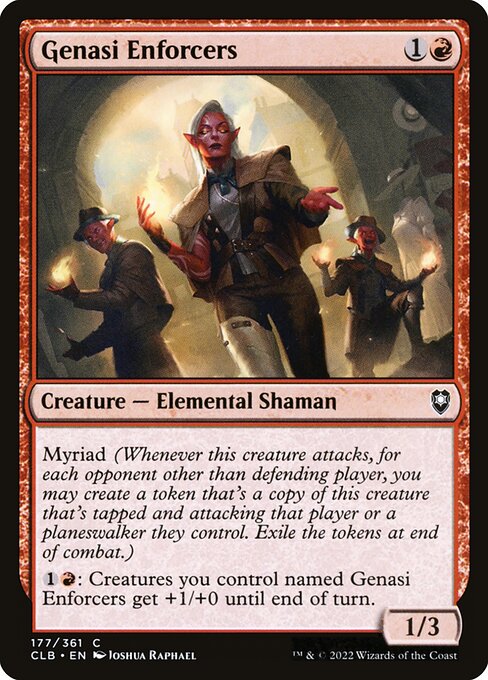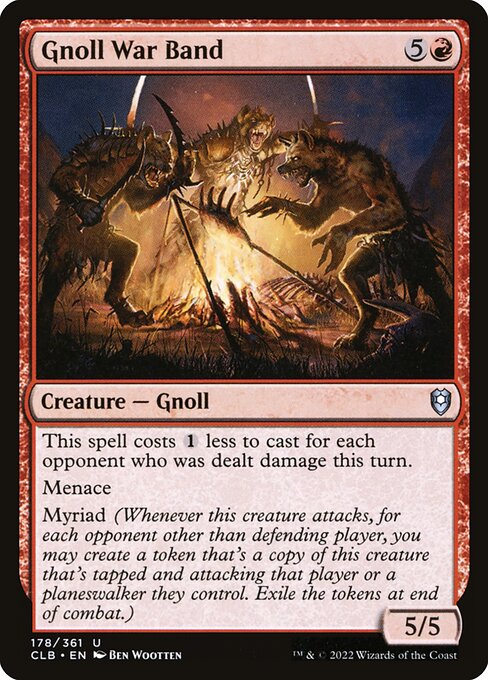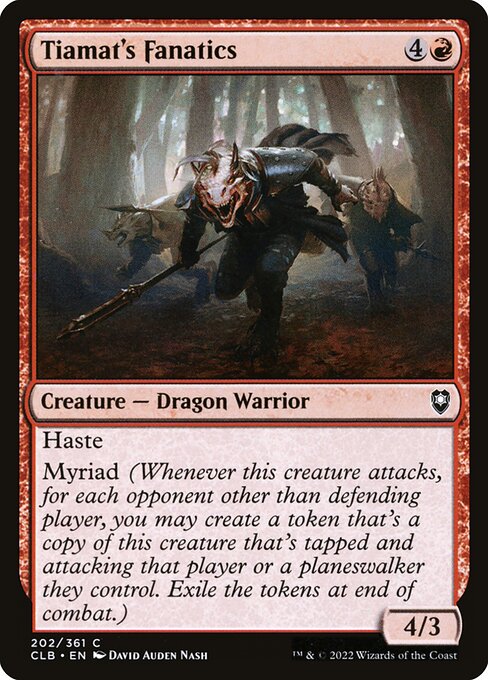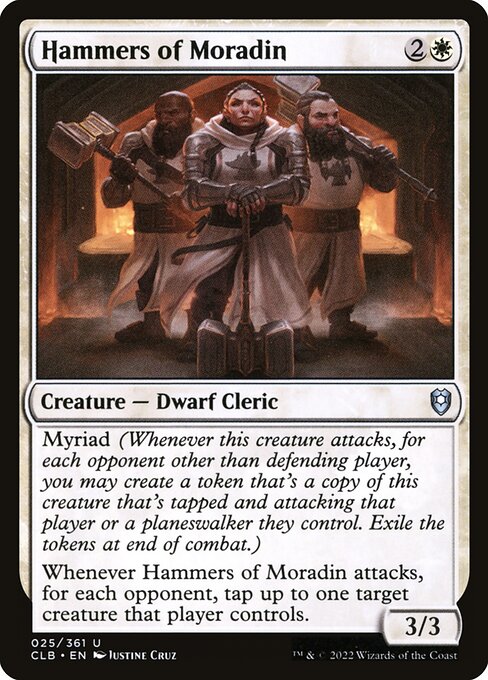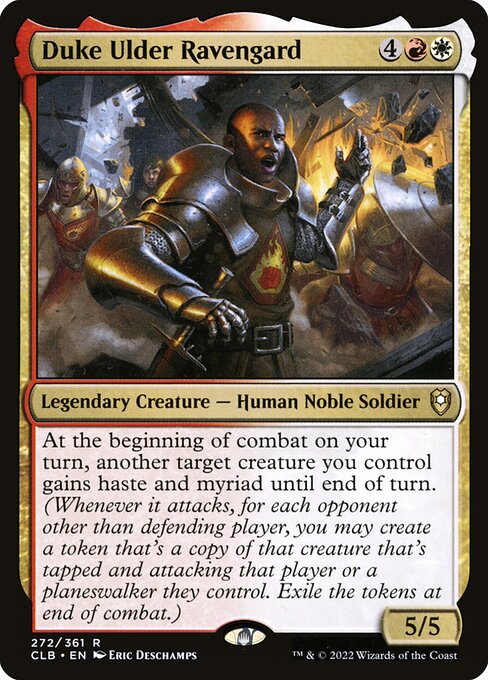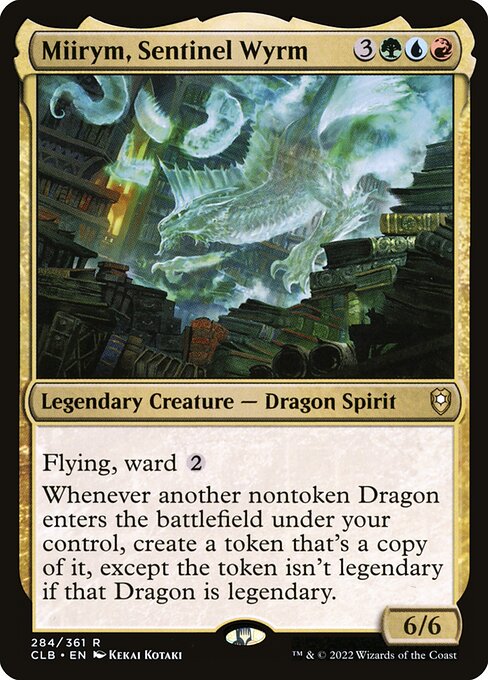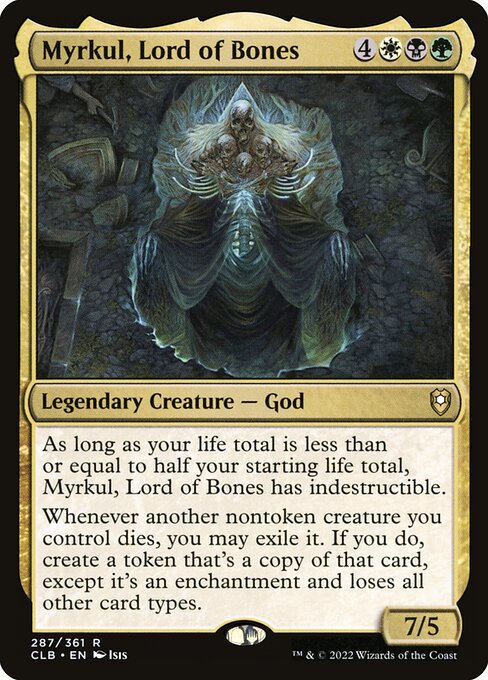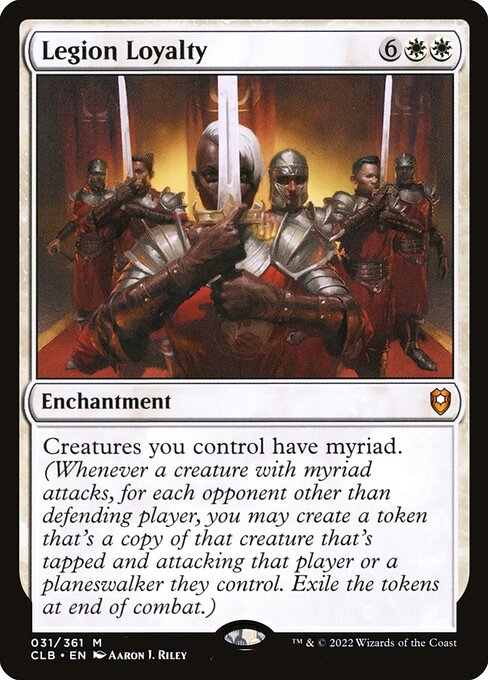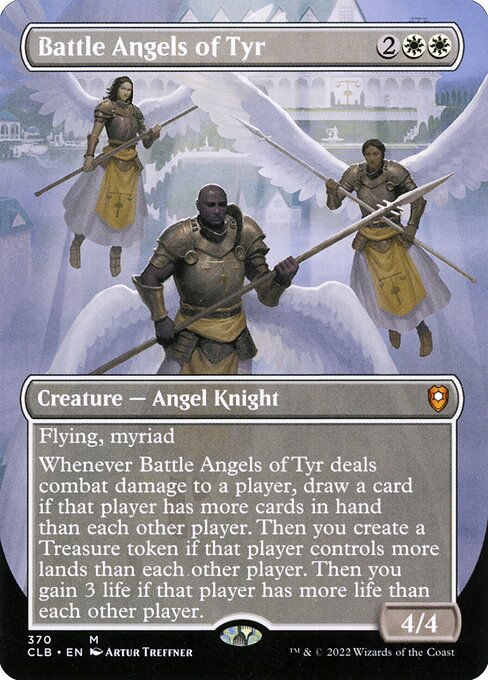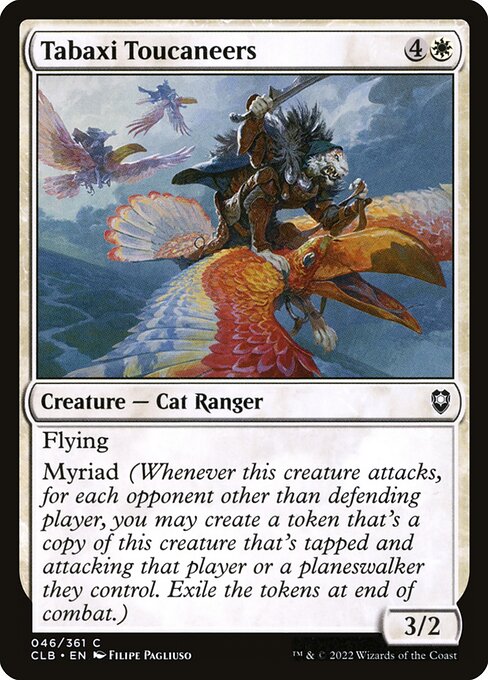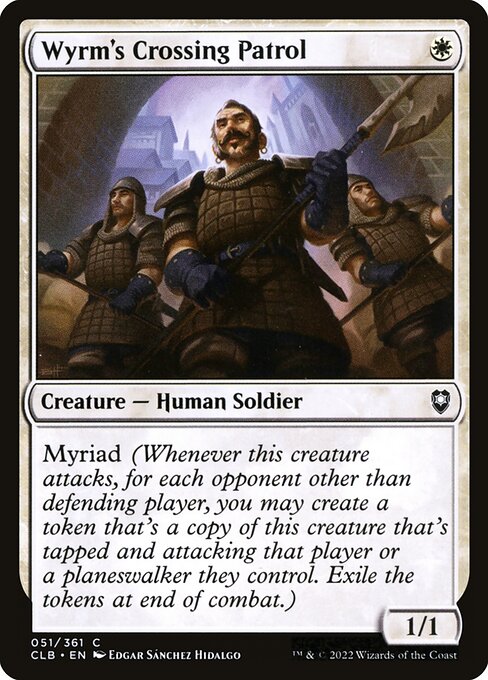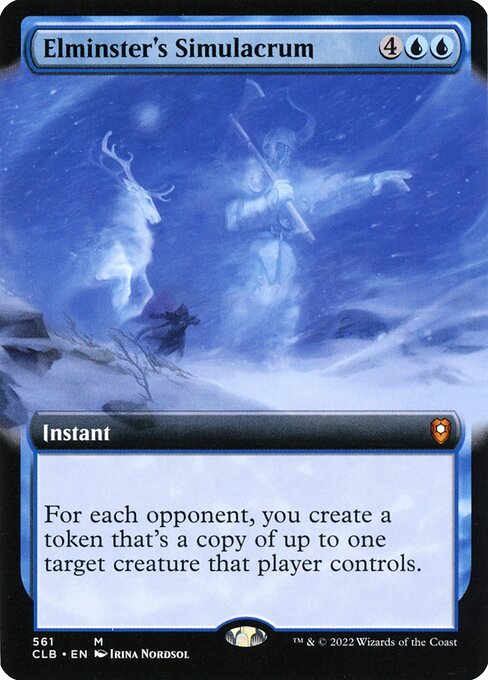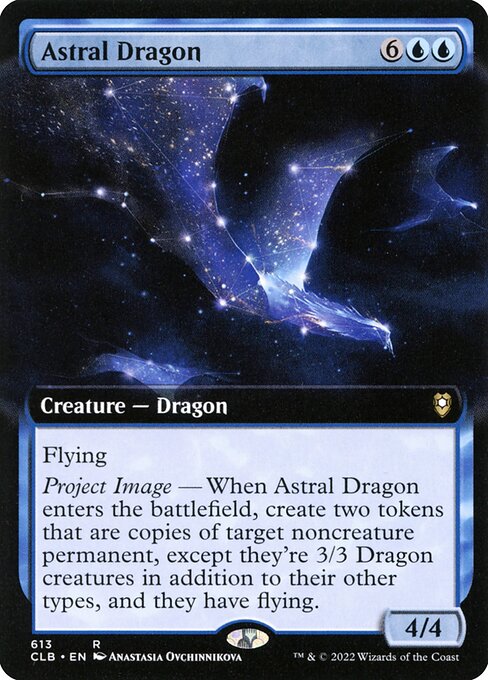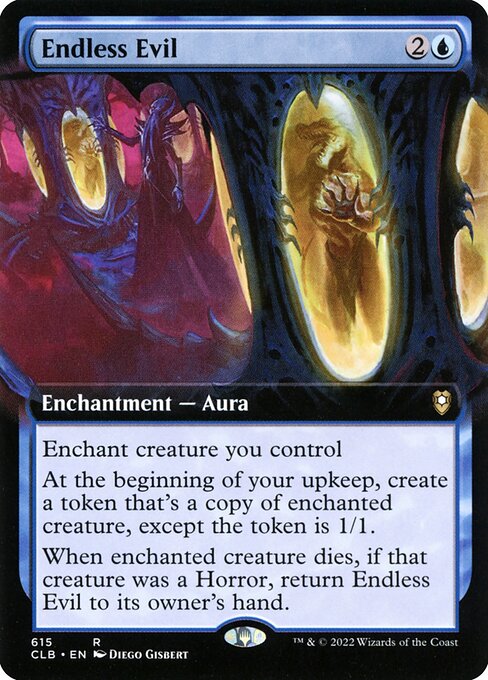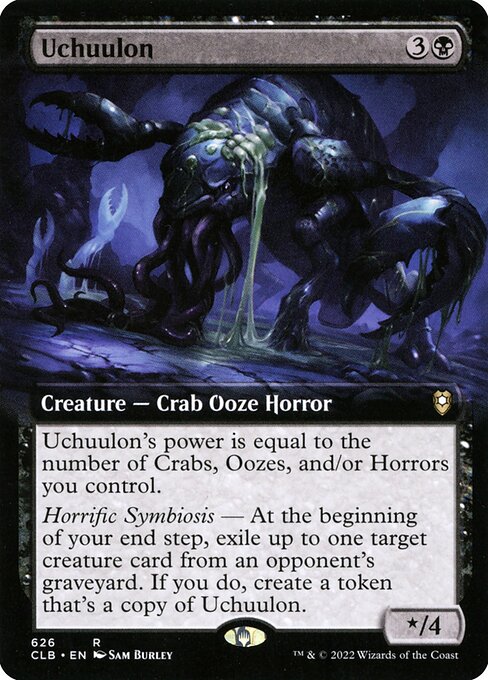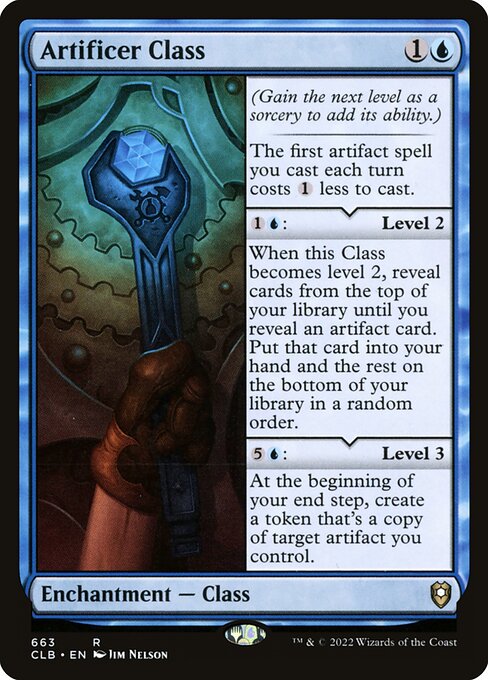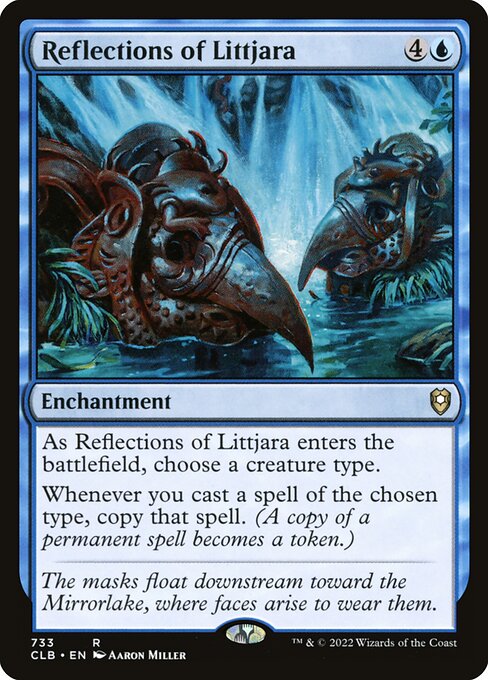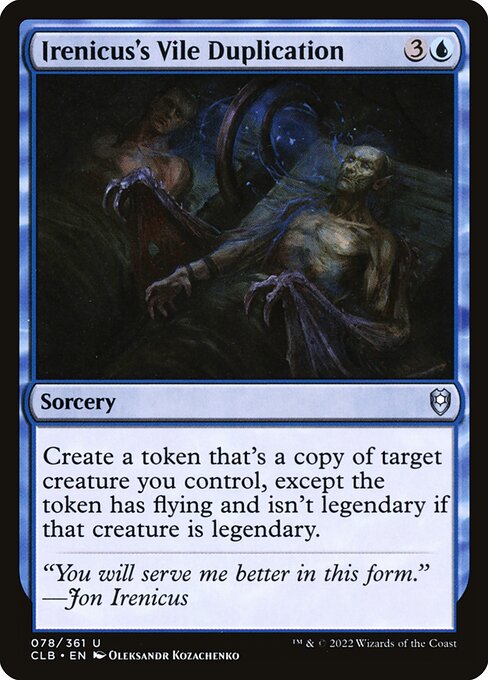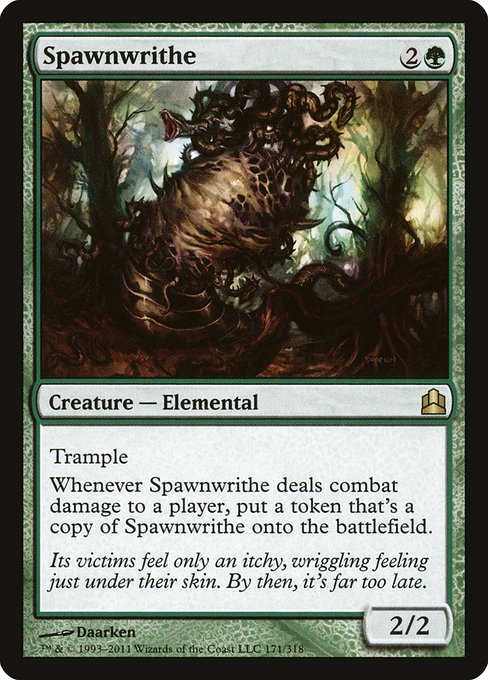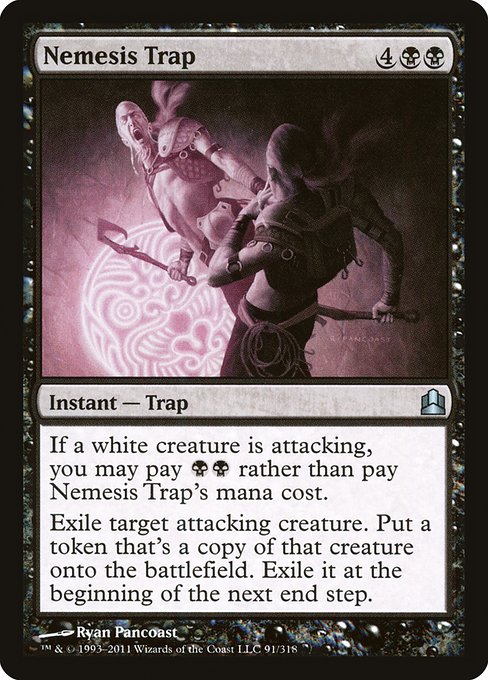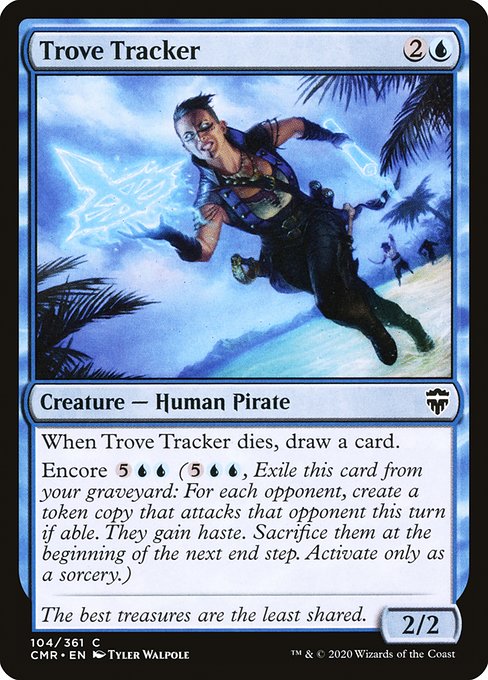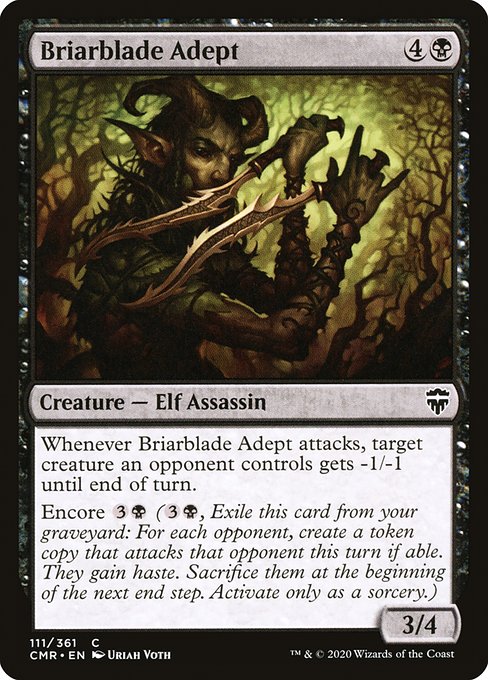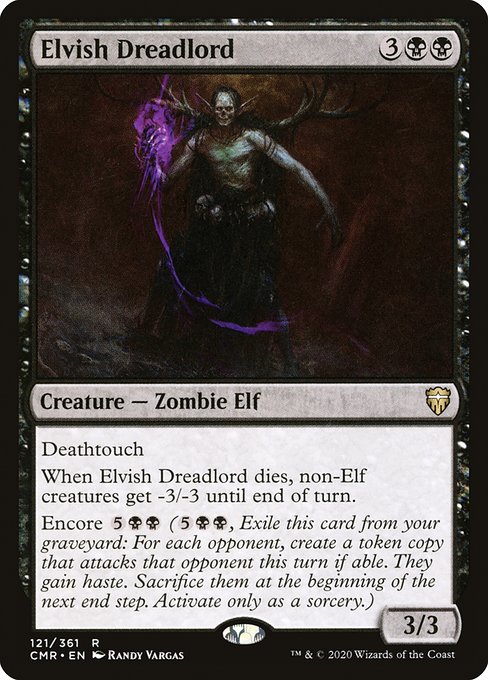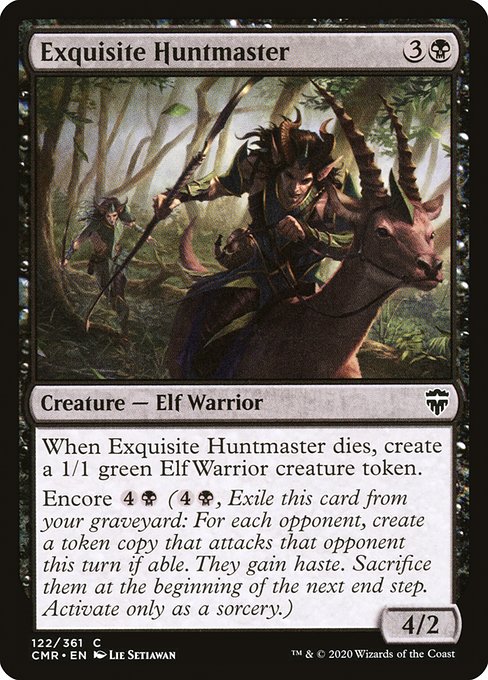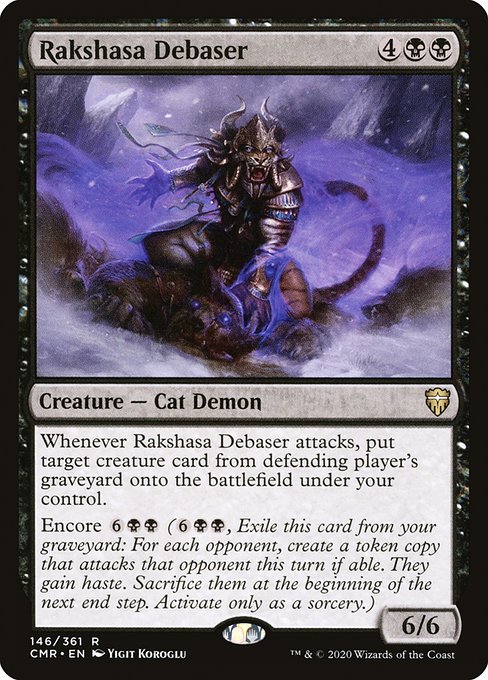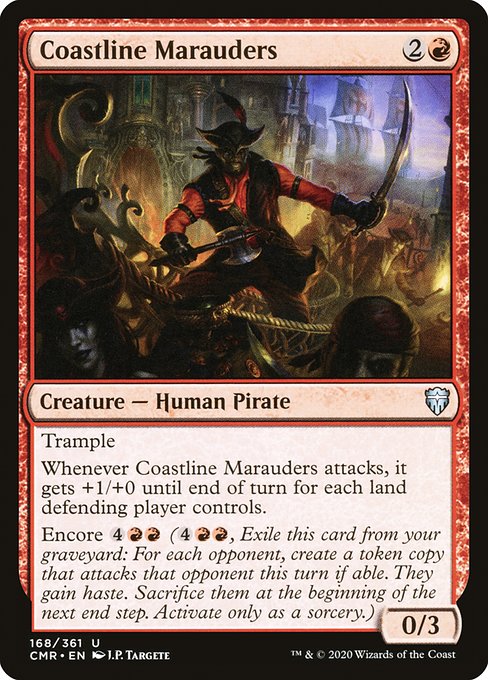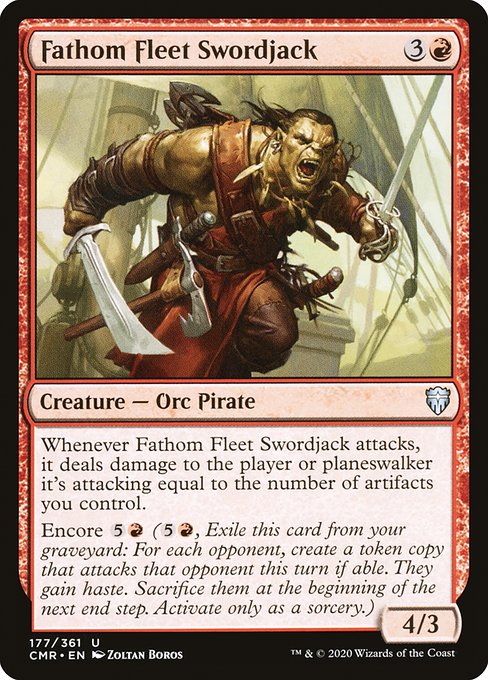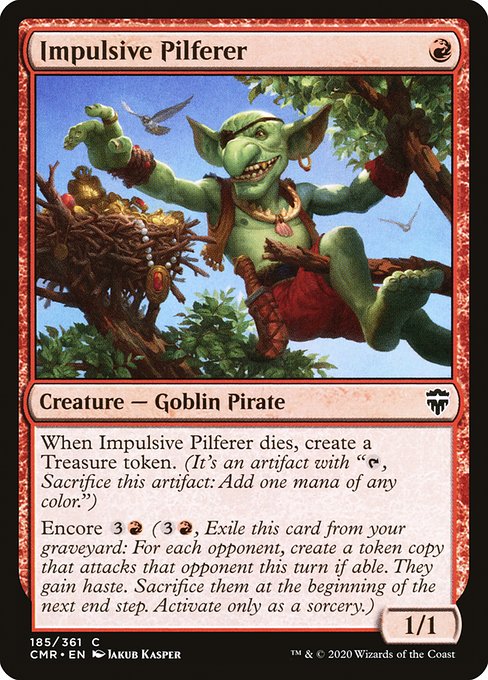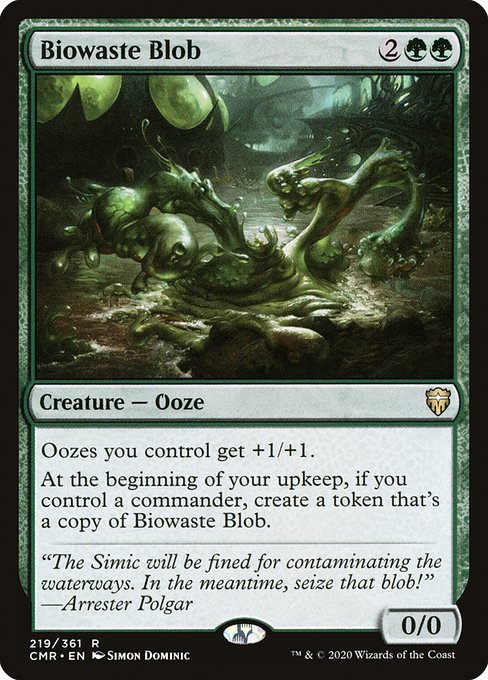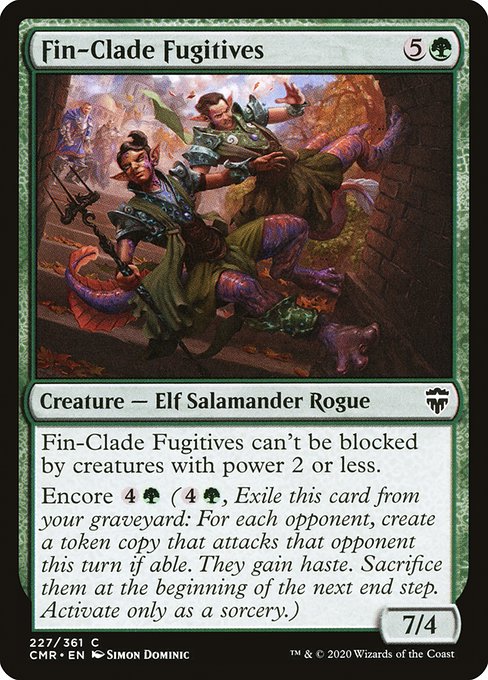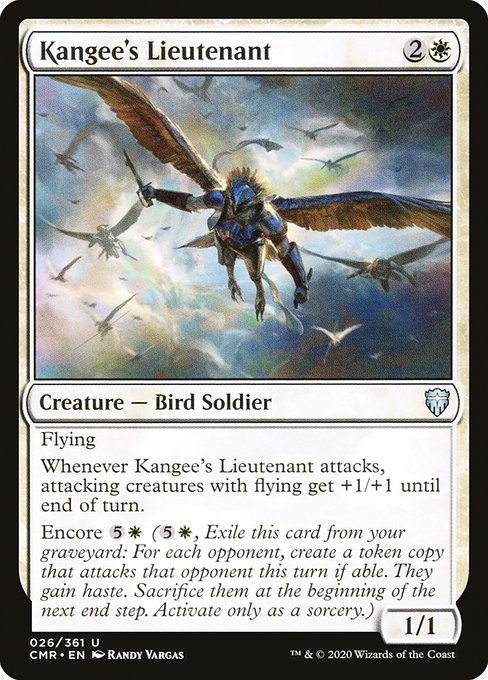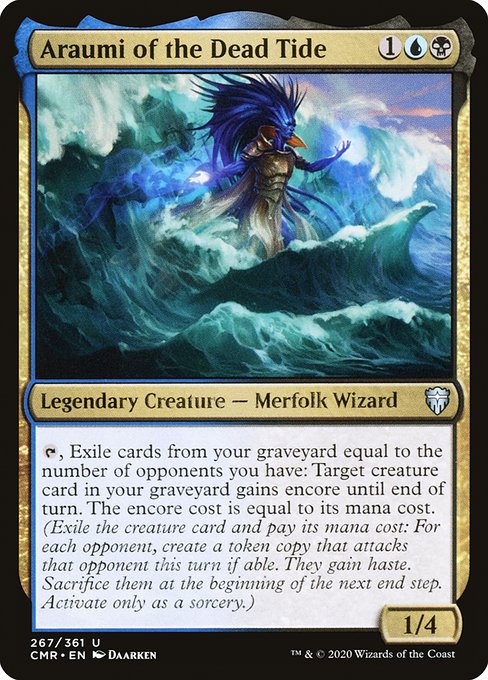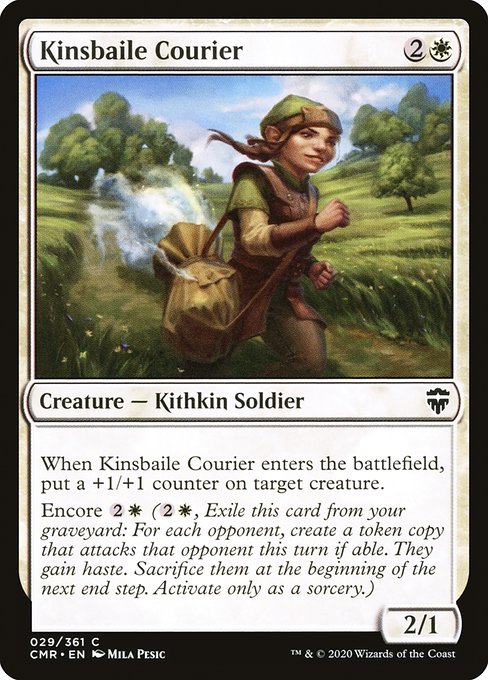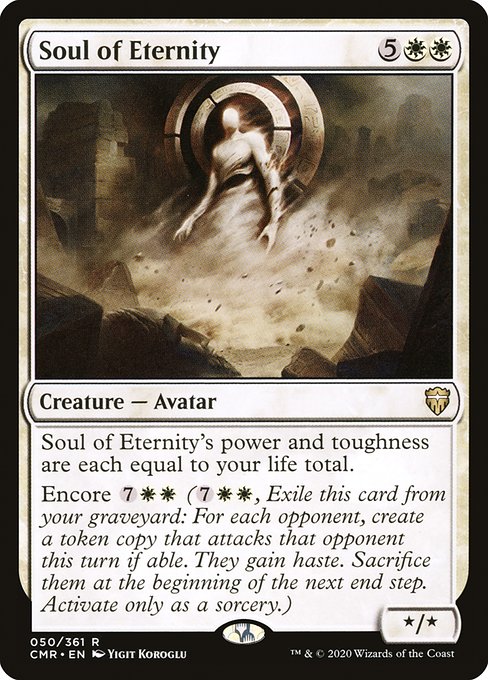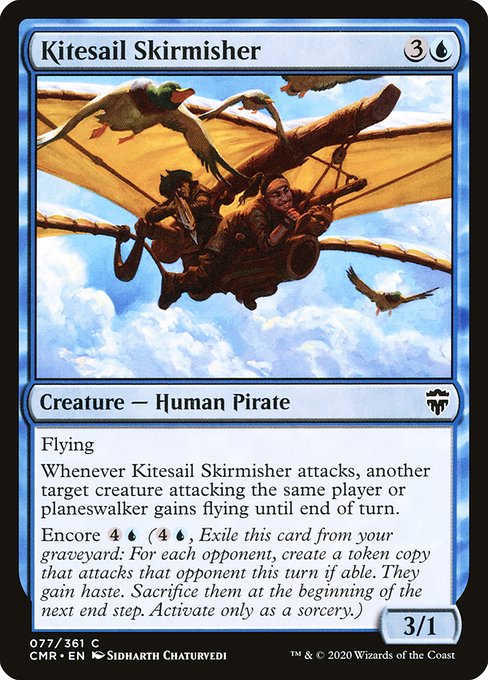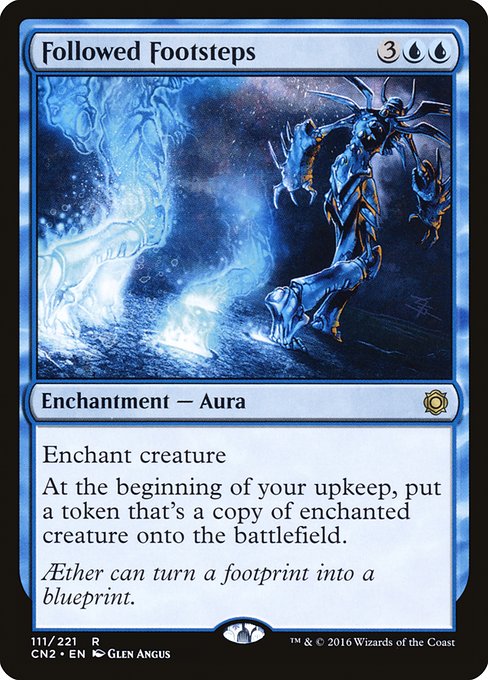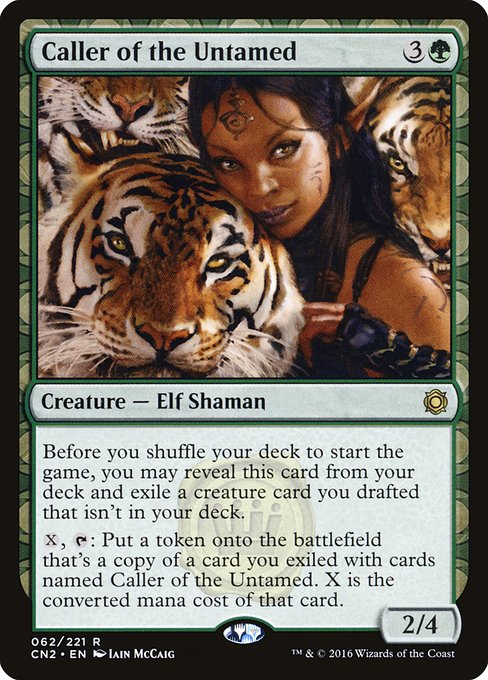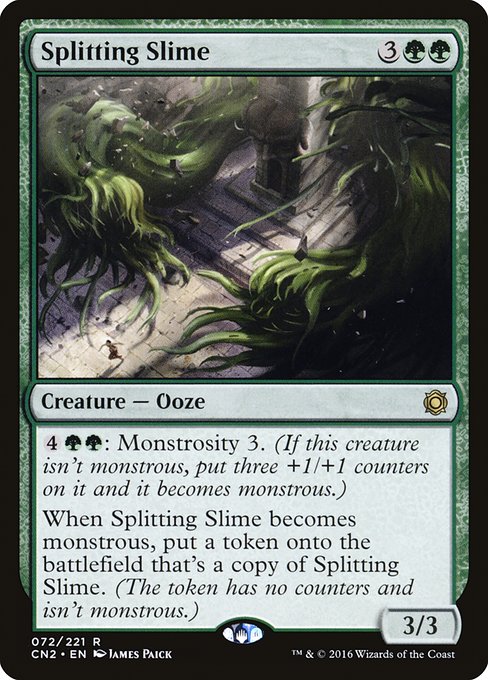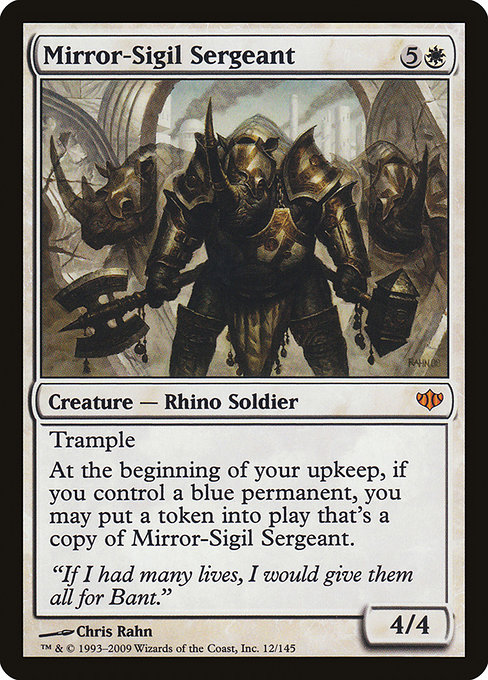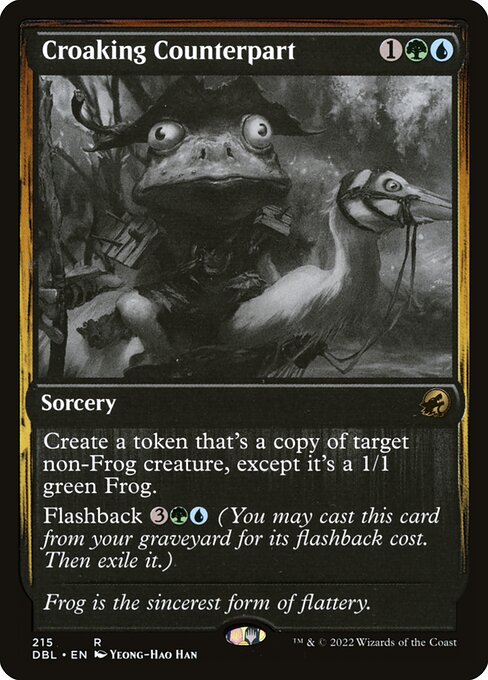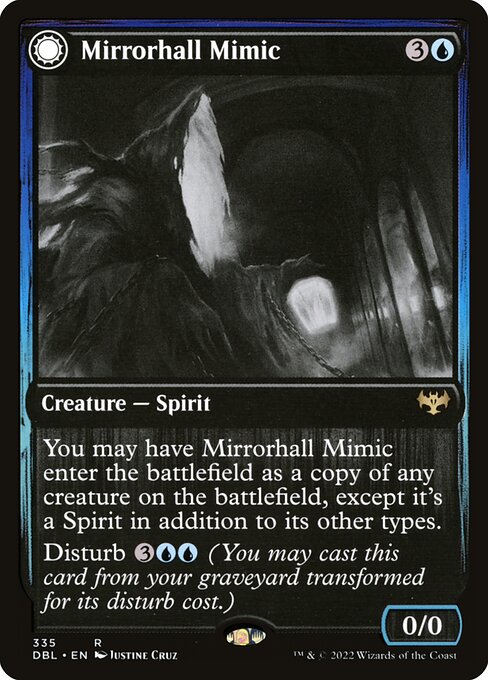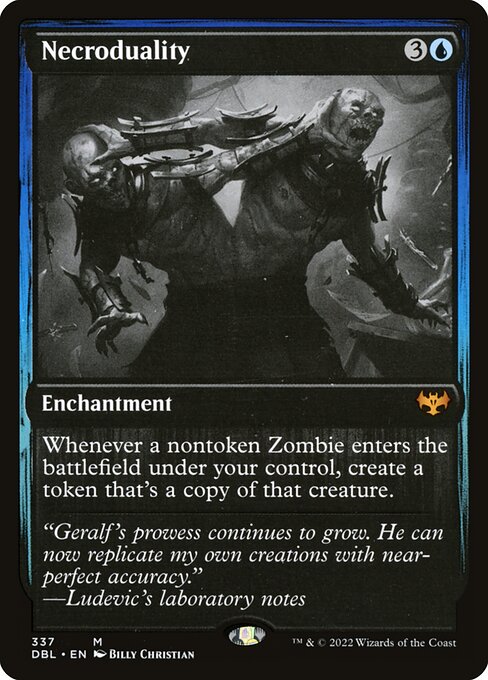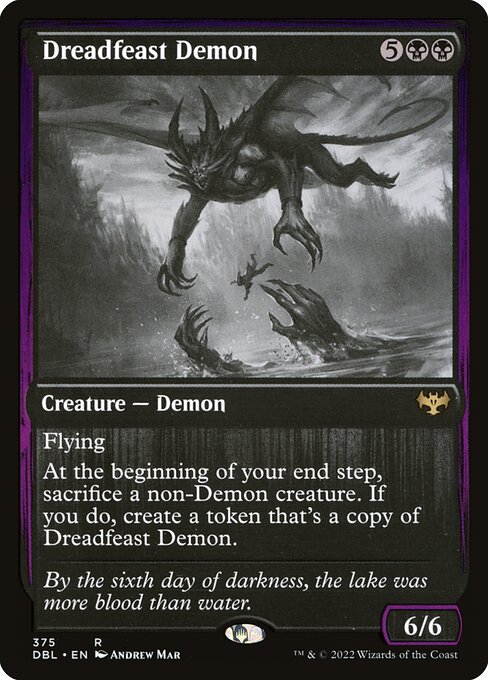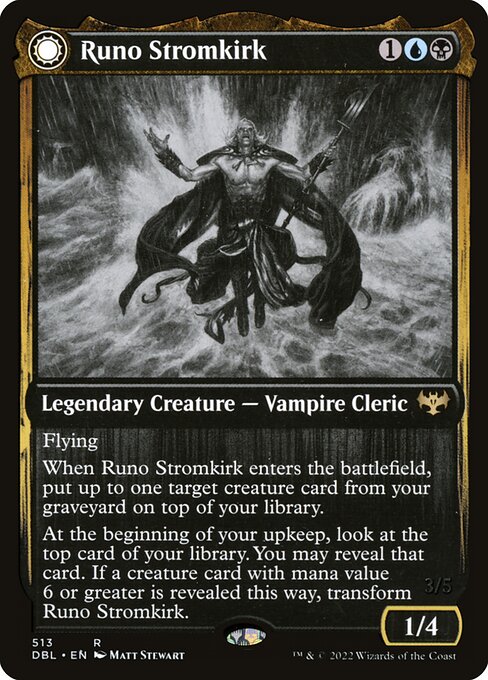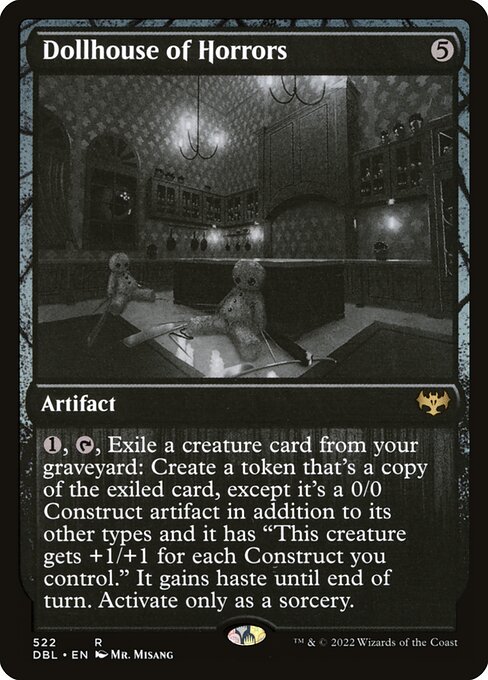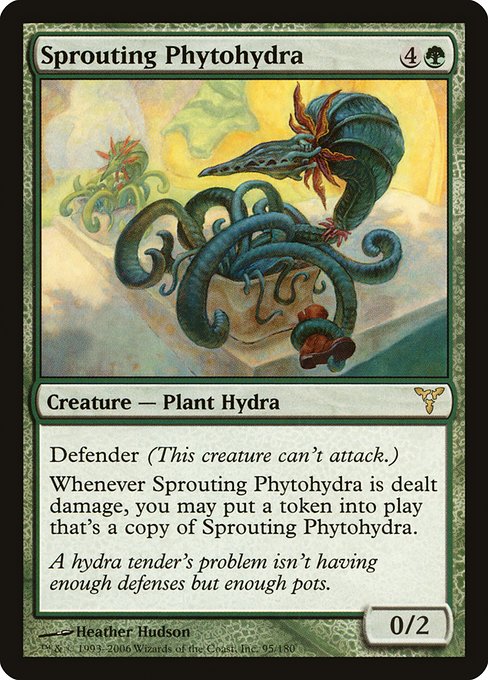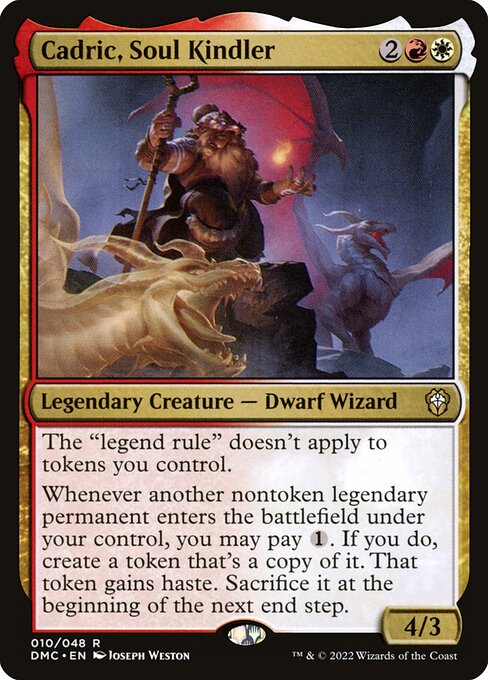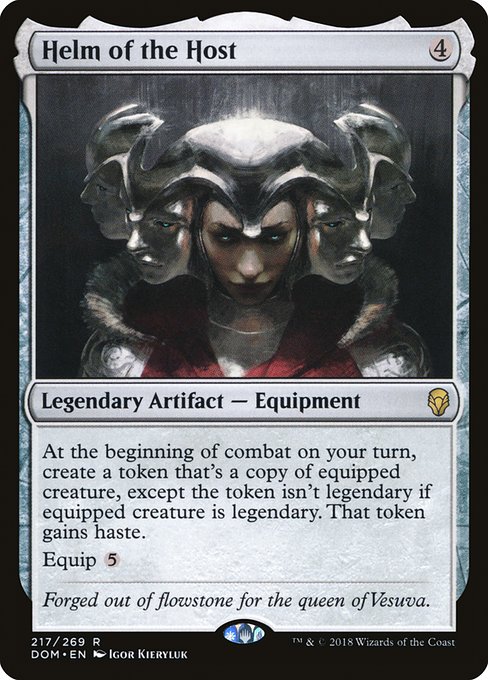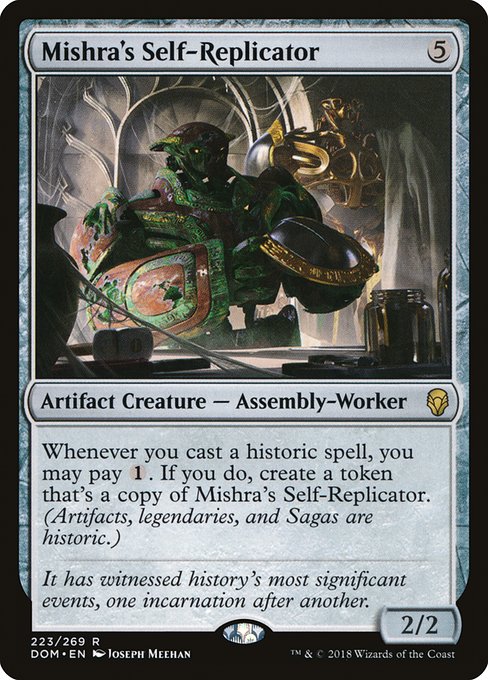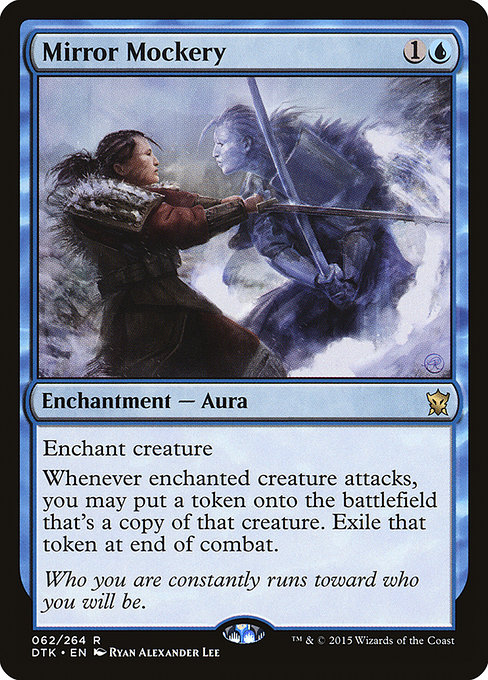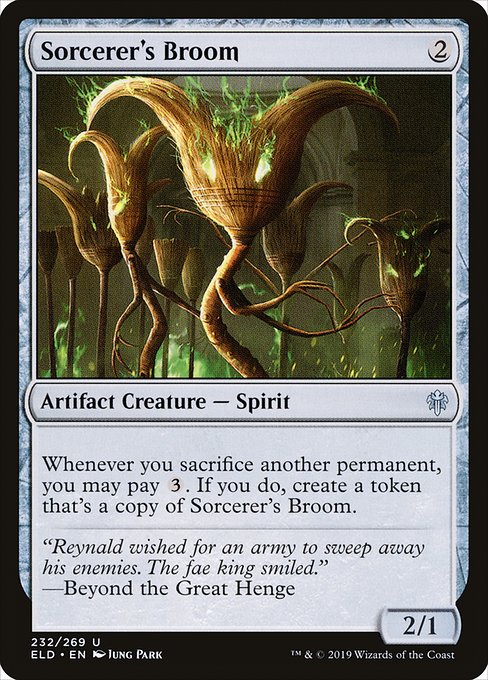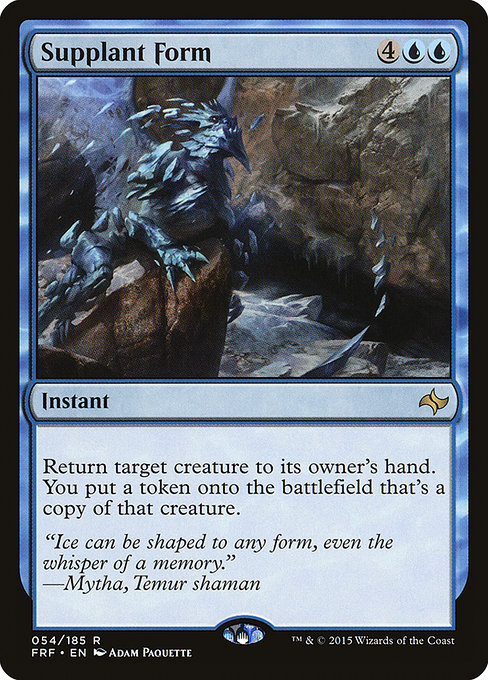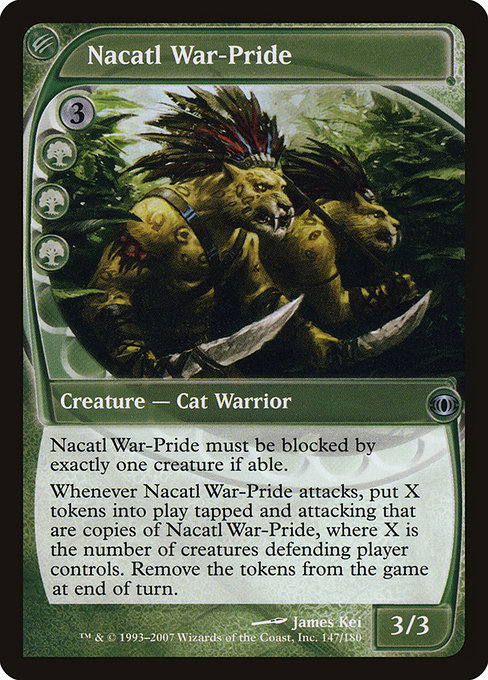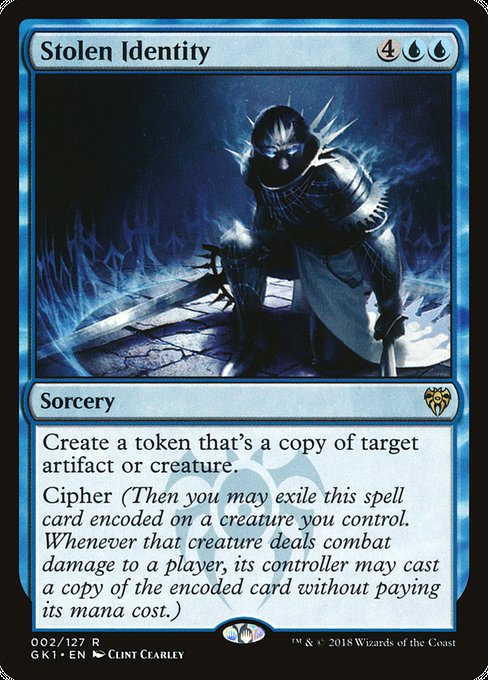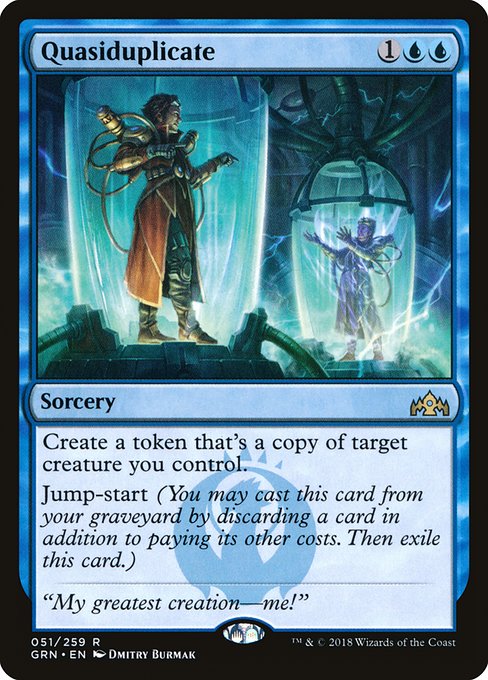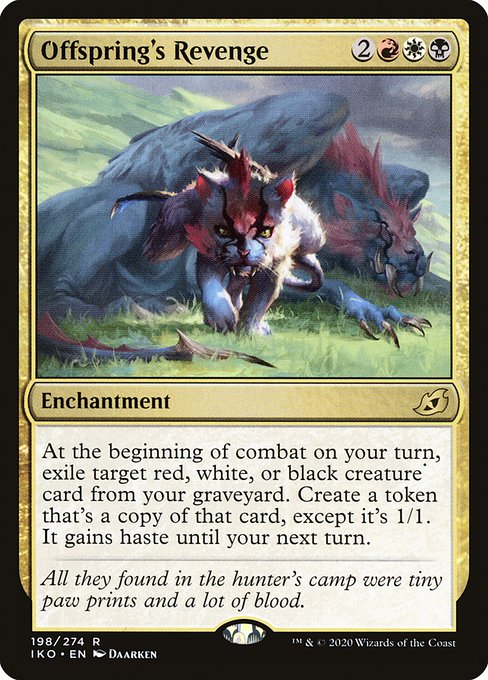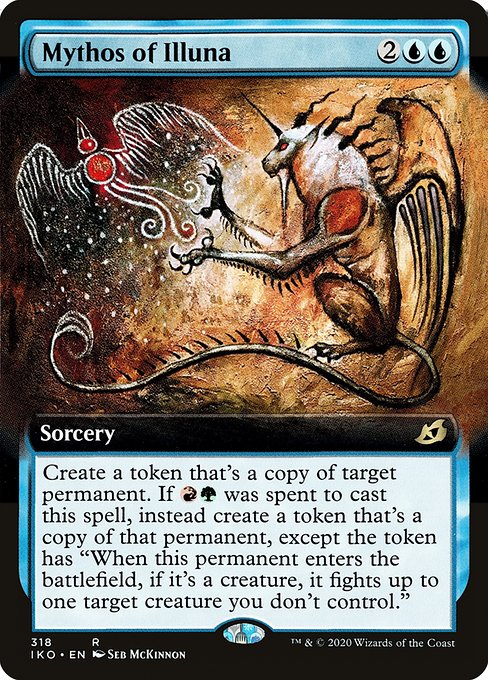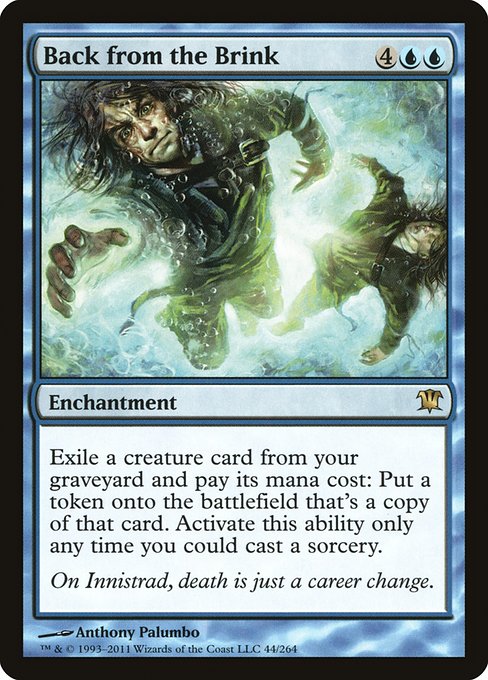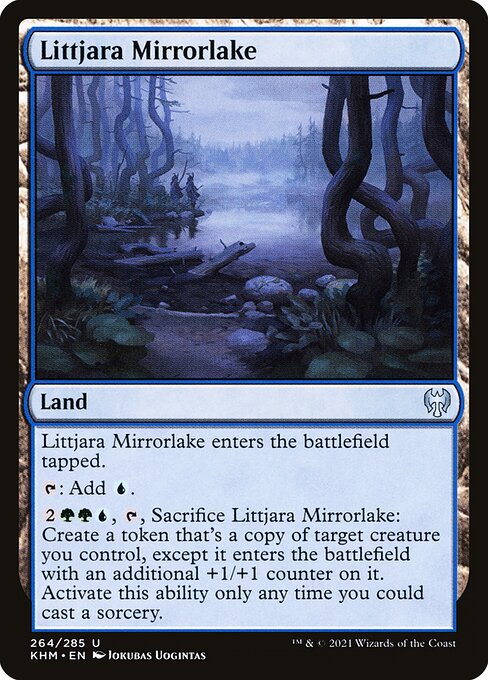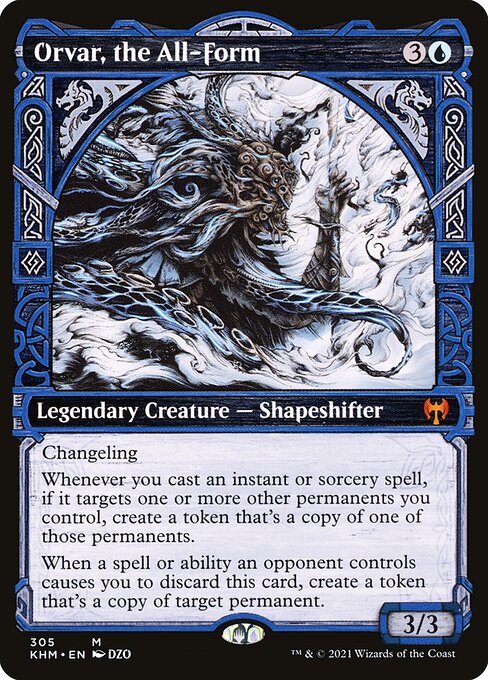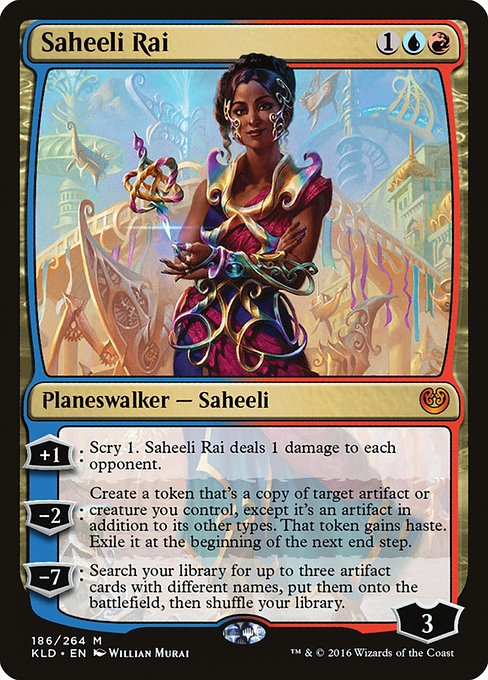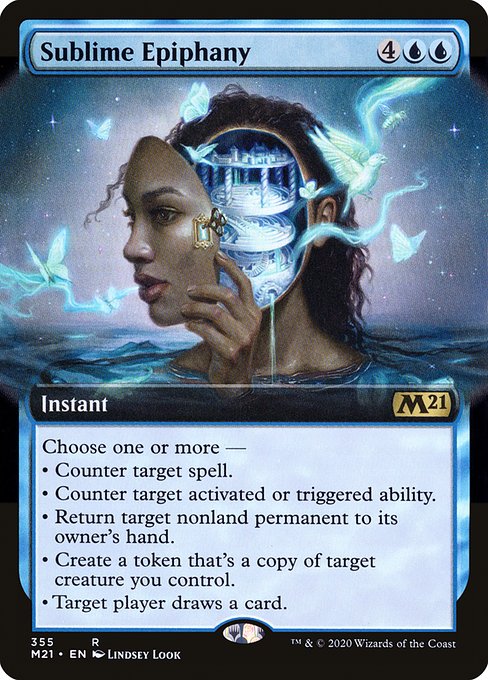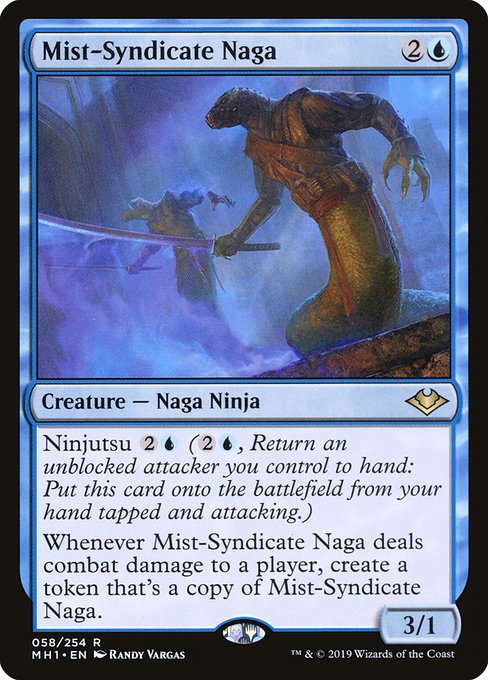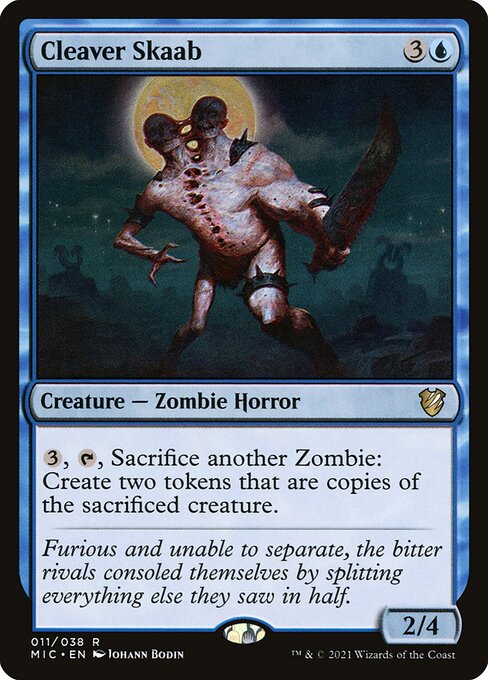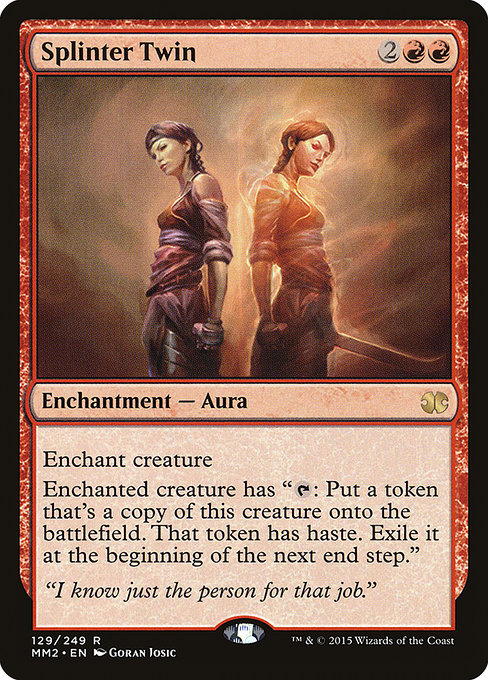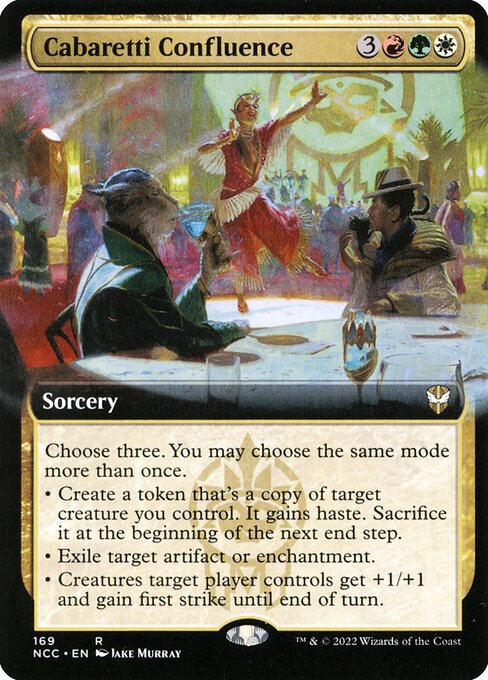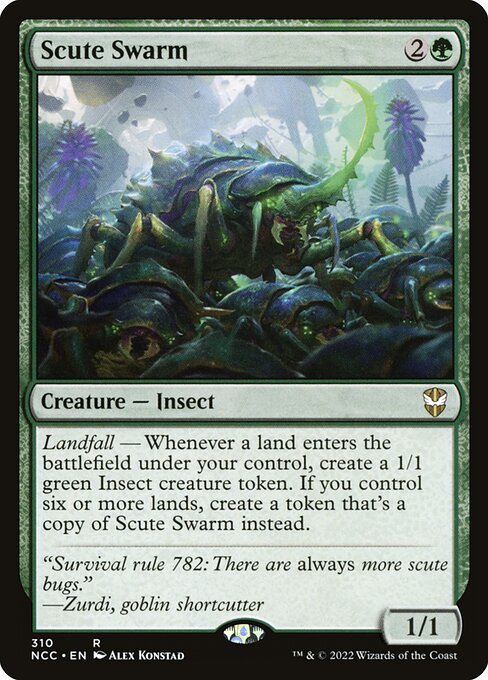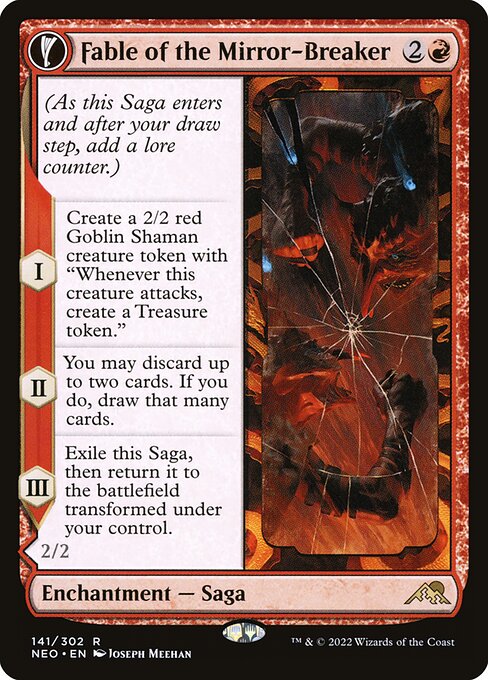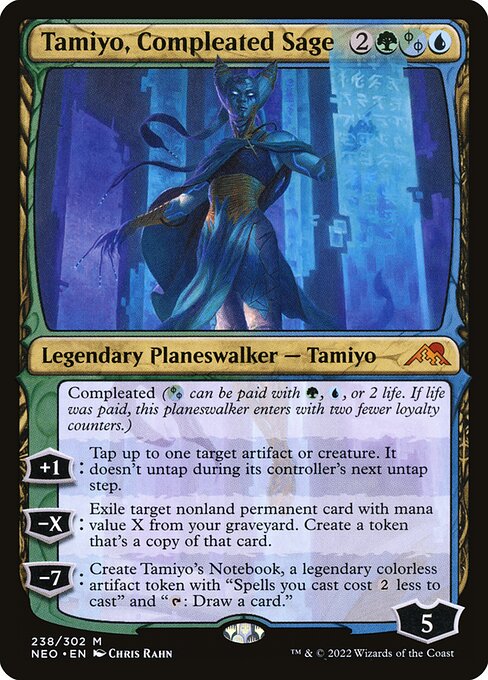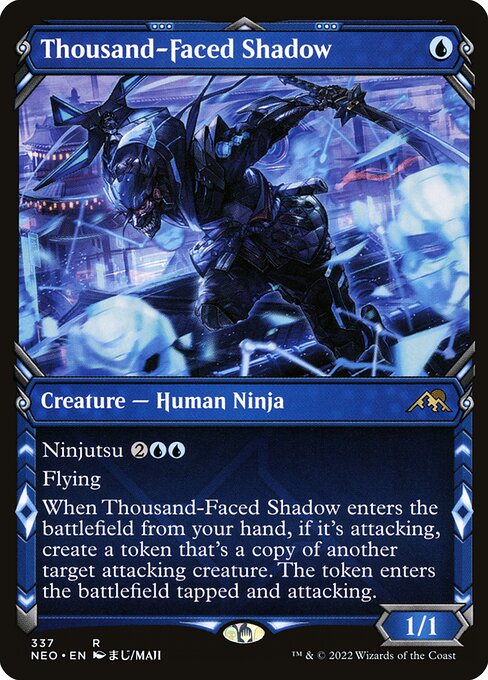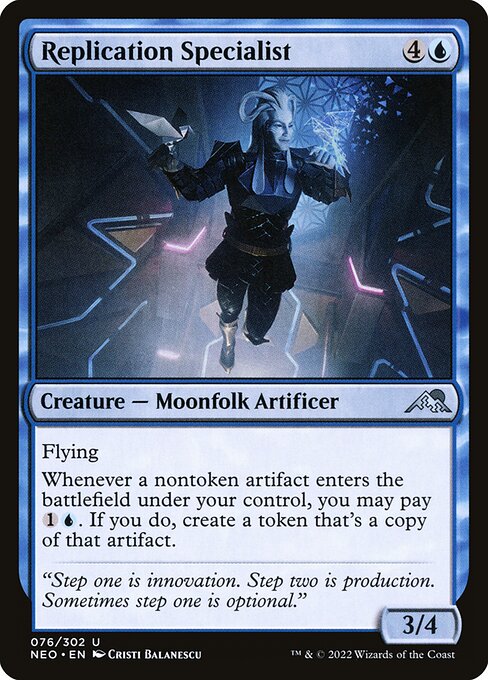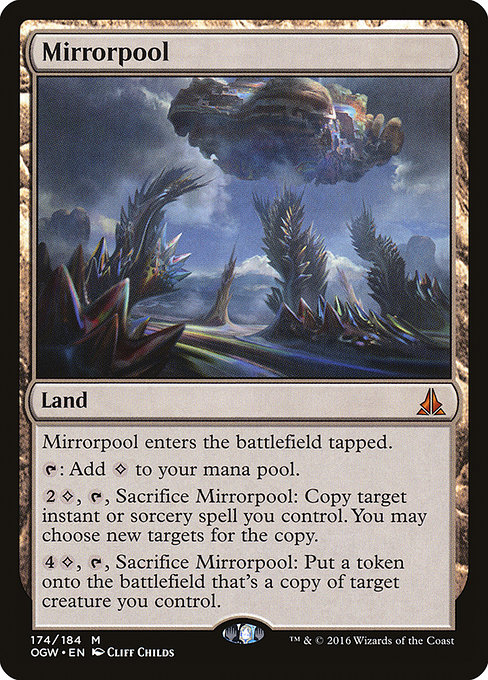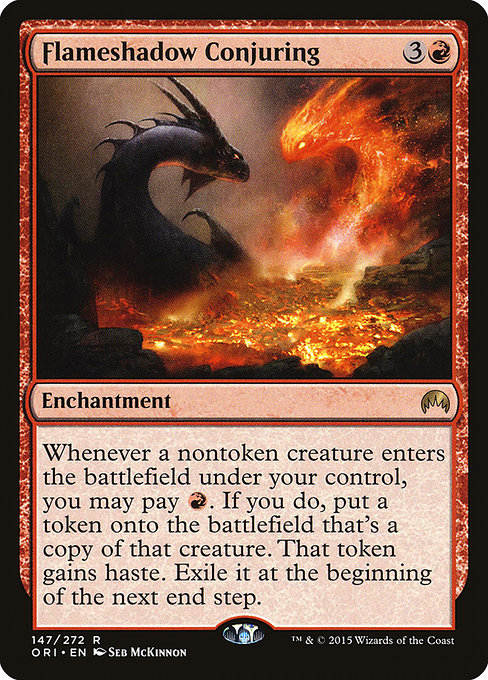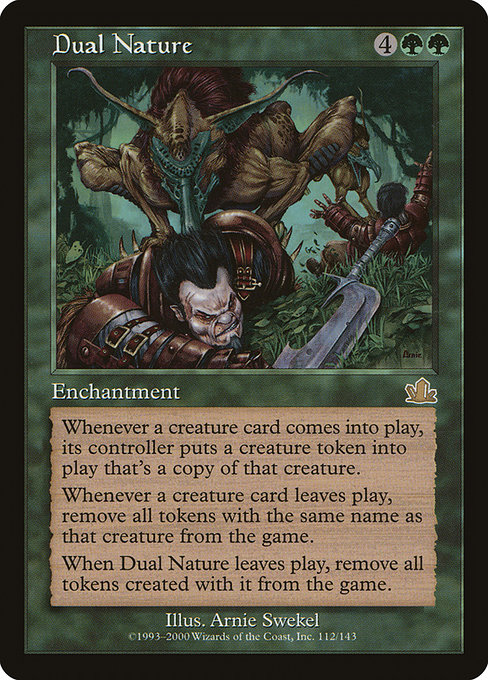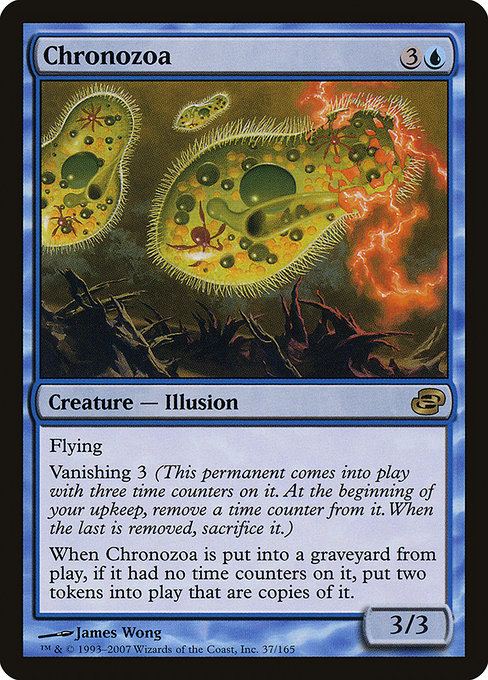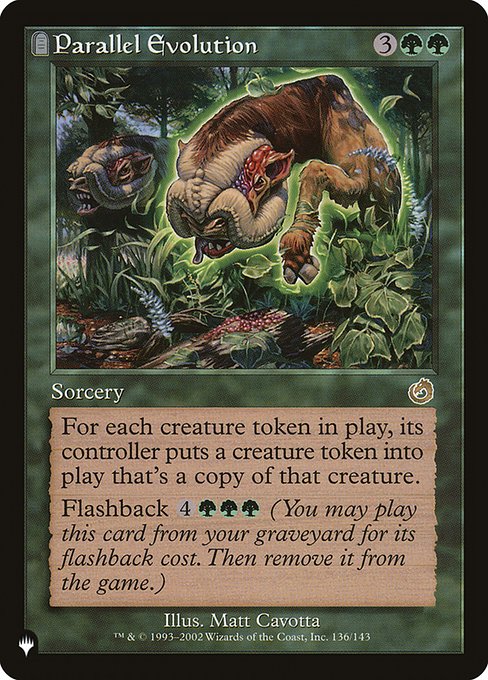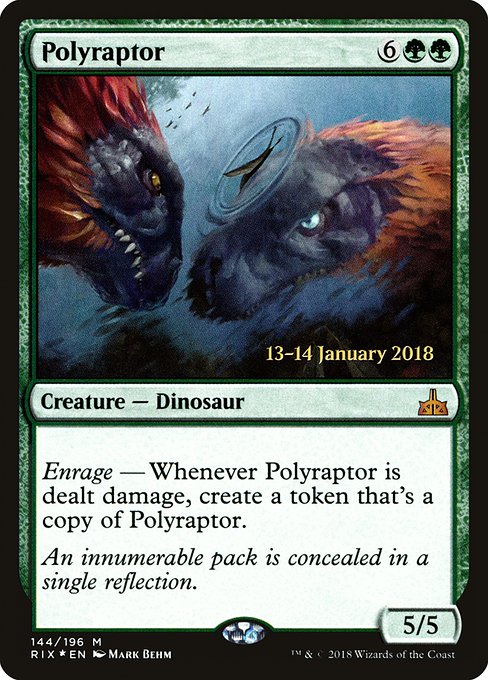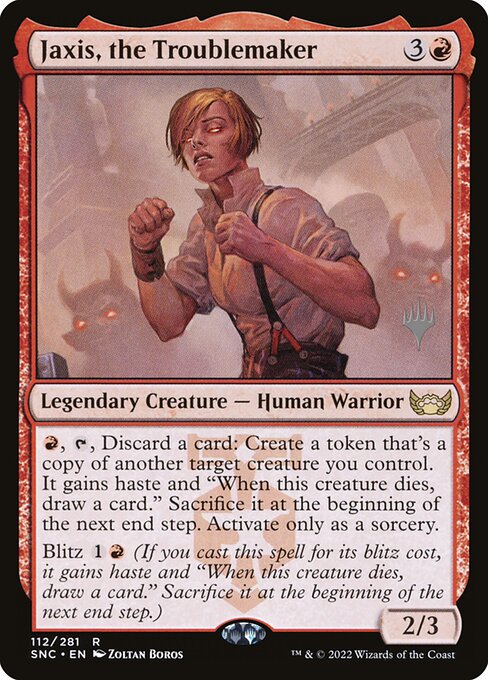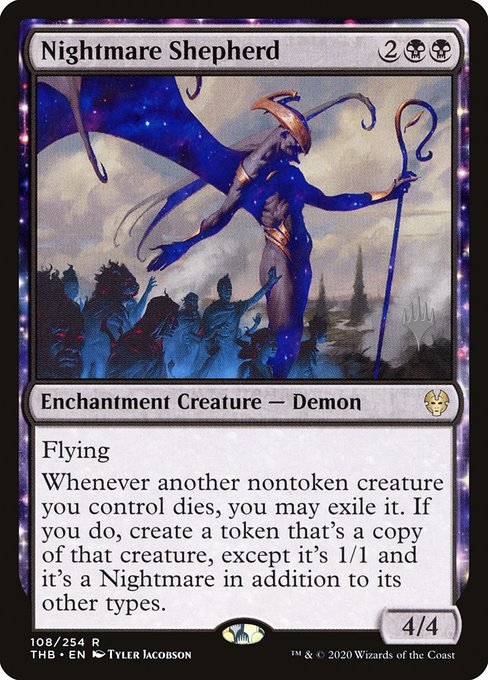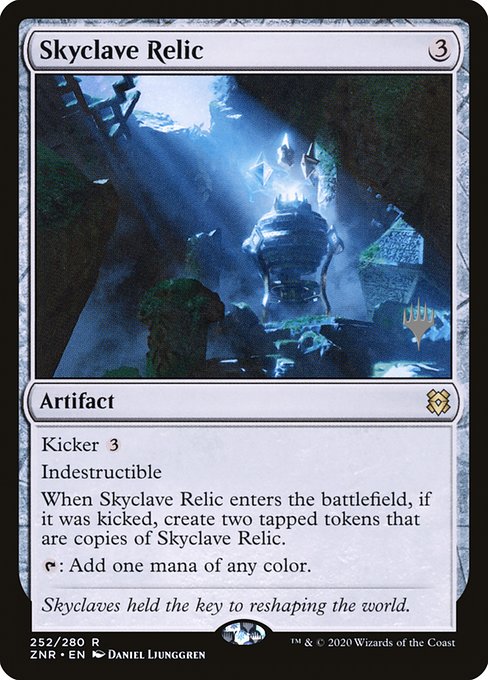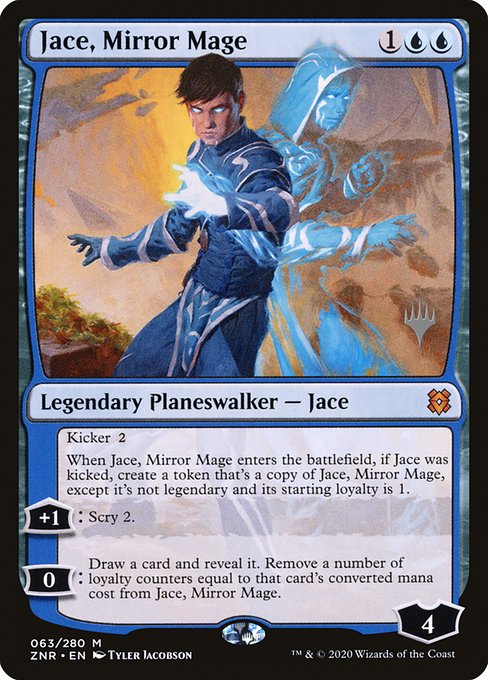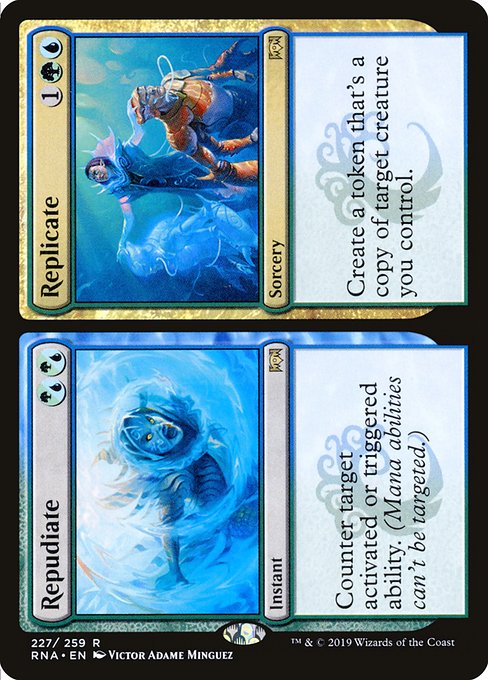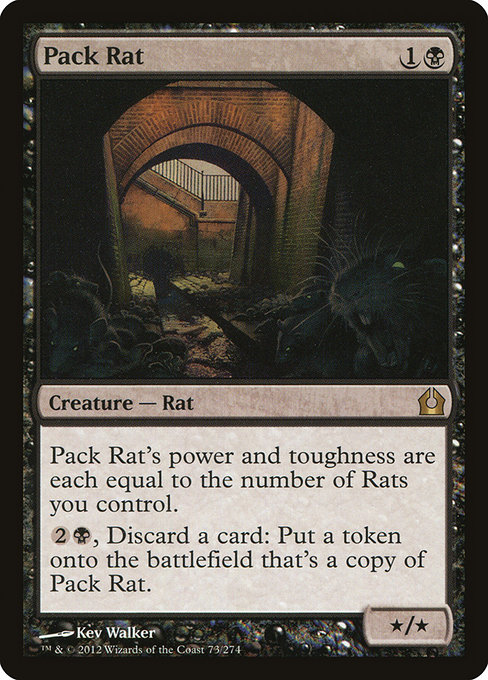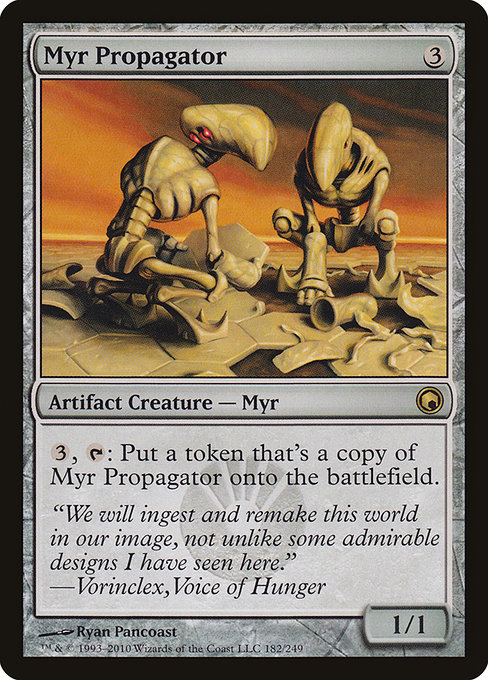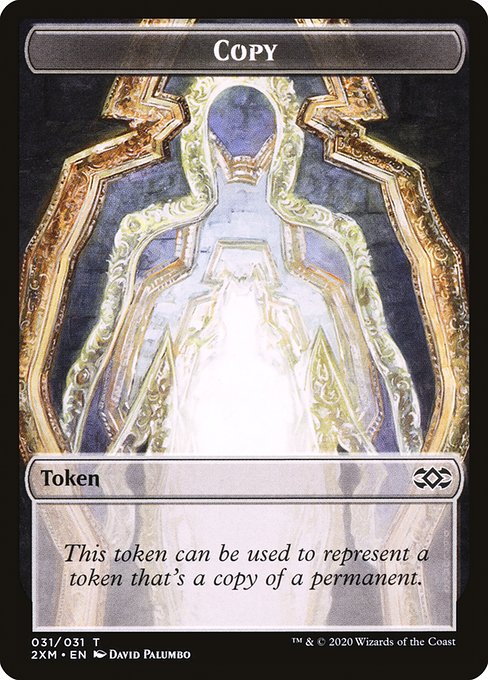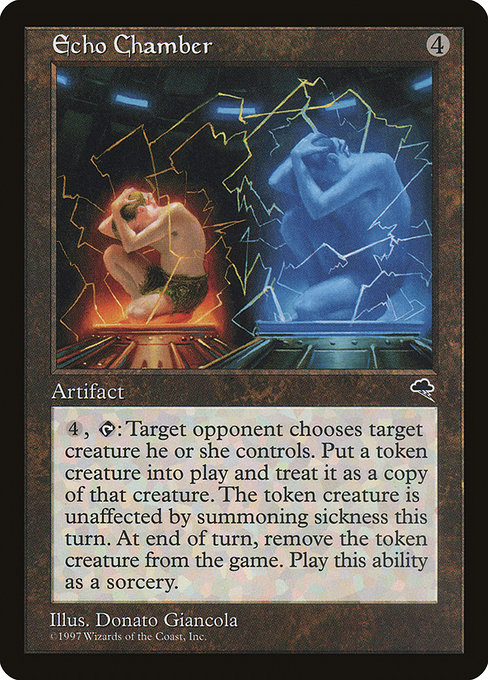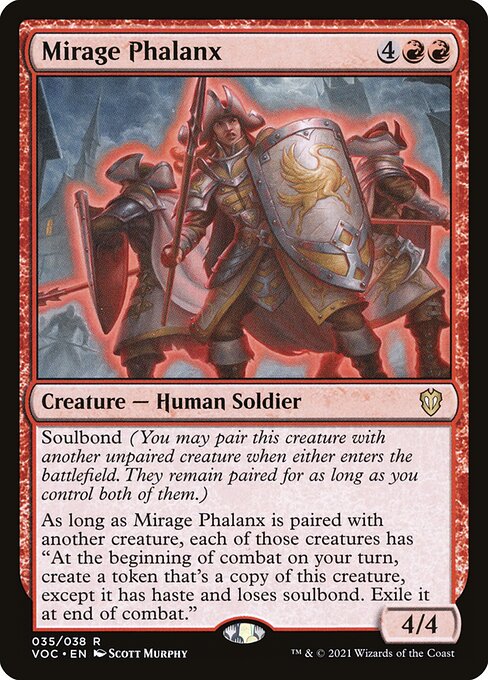standard
future
historic
gladiator
pioneer
explorer
modern
legacy
pauper
vintage
penny
commander
brawl
alchemy
paupercommander
duel
oldschool
premodern
Rulings
If the copied spell is modal (that is, it says “Choose one —” or the like), the copy has the same mode as the original spell. You can't choose a different one.
The copiable values of the token's characteristics are the same as the copiable values of the characteristics of the creature it's copying.
If the creature had in its mana cost, X must be 0. Note this is different from an found in the mana cost of a copied spell.
If the creature that caused Riku's second ability to trigger has already left the battlefield by the time the ability resolves, you can still pay . If you do, you'll still put a token onto the battlefield. That token has the copiable values of the characteristics of that creature as it last existed on the battlefield.
If the copied spell has in its mana cost, the value of X is copied.
Each time the first ability triggers, you can pay only one time to get one copy of the spell. Each time the second ability triggers, you can pay only one time to get one token.
As the token is created, it checks the printed values of the creature it's copying, as well as any copy effects that have been applied to it.
If the spell that caused Riku's first ability to trigger has left the stack by the time the ability resolves, you can still pay . If you do, you'll copy the spell as it last existed on the stack.
You can't pay any additional costs for the copy. However, effects based on any additional costs paid for the original spell are copied as though those same costs were paid for the copy. Notably, if the original spell was kicked (or kicked a certain number of times), the copy will also be kicked (or kicked that many times).
Riku's first ability triggers whenever you cast any instant or sorcery spell, regardless of whether that spell has targets.
The copiable values of the token's characteristics are the same as the copiable values of the characteristics of the creature it's copying.
If the creature had in its mana cost, X must be 0. Note this is different from an found in the mana cost of a copied spell.
If the creature that caused Riku's second ability to trigger has already left the battlefield by the time the ability resolves, you can still pay . If you do, you'll still put a token onto the battlefield. That token has the copiable values of the characteristics of that creature as it last existed on the battlefield.
If the copied spell has in its mana cost, the value of X is copied.
Each time the first ability triggers, you can pay only one time to get one copy of the spell. Each time the second ability triggers, you can pay only one time to get one token.
As the token is created, it checks the printed values of the creature it's copying, as well as any copy effects that have been applied to it.
If the spell that caused Riku's first ability to trigger has left the stack by the time the ability resolves, you can still pay . If you do, you'll copy the spell as it last existed on the stack.
You can't pay any additional costs for the copy. However, effects based on any additional costs paid for the original spell are copied as though those same costs were paid for the copy. Notably, if the original spell was kicked (or kicked a certain number of times), the copy will also be kicked (or kicked that many times).
Riku's first ability triggers whenever you cast any instant or sorcery spell, regardless of whether that spell has targets.
Rulings
If the copied spell is modal (that is, it says “Choose one —” or the like), the copy has the same mode as the original spell. You can't choose a different one.
The copiable values of the token's characteristics are the same as the copiable values of the characteristics of the creature it's copying.
If the creature had in its mana cost, X must be 0. Note this is different from an found in the mana cost of a copied spell.
If the creature that caused Riku's second ability to trigger has already left the battlefield by the time the ability resolves, you can still pay . If you do, you'll still put a token onto the battlefield. That token has the copiable values of the characteristics of that creature as it last existed on the battlefield.
If the copied spell has in its mana cost, the value of X is copied.
Each time the first ability triggers, you can pay only one time to get one copy of the spell. Each time the second ability triggers, you can pay only one time to get one token.
As the token is created, it checks the printed values of the creature it's copying, as well as any copy effects that have been applied to it.
If the spell that caused Riku's first ability to trigger has left the stack by the time the ability resolves, you can still pay . If you do, you'll copy the spell as it last existed on the stack.
You can't pay any additional costs for the copy. However, effects based on any additional costs paid for the original spell are copied as though those same costs were paid for the copy. Notably, if the original spell was kicked (or kicked a certain number of times), the copy will also be kicked (or kicked that many times).
Riku's first ability triggers whenever you cast any instant or sorcery spell, regardless of whether that spell has targets.
The copiable values of the token's characteristics are the same as the copiable values of the characteristics of the creature it's copying.
If the creature had in its mana cost, X must be 0. Note this is different from an found in the mana cost of a copied spell.
If the creature that caused Riku's second ability to trigger has already left the battlefield by the time the ability resolves, you can still pay . If you do, you'll still put a token onto the battlefield. That token has the copiable values of the characteristics of that creature as it last existed on the battlefield.
If the copied spell has in its mana cost, the value of X is copied.
Each time the first ability triggers, you can pay only one time to get one copy of the spell. Each time the second ability triggers, you can pay only one time to get one token.
As the token is created, it checks the printed values of the creature it's copying, as well as any copy effects that have been applied to it.
If the spell that caused Riku's first ability to trigger has left the stack by the time the ability resolves, you can still pay . If you do, you'll copy the spell as it last existed on the stack.
You can't pay any additional costs for the copy. However, effects based on any additional costs paid for the original spell are copied as though those same costs were paid for the copy. Notably, if the original spell was kicked (or kicked a certain number of times), the copy will also be kicked (or kicked that many times).
Riku's first ability triggers whenever you cast any instant or sorcery spell, regardless of whether that spell has targets.
Votre collection ? vos decks ?
Envie de gérer votre collection et/ou créer des decks ?
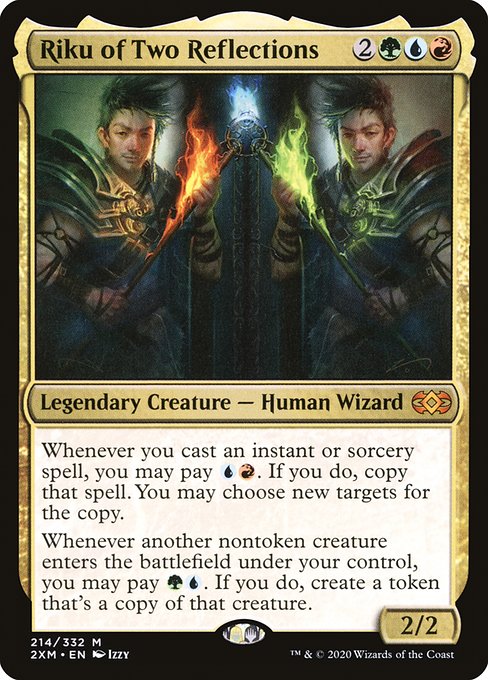

 0
0
 3.04€
3.04€
